
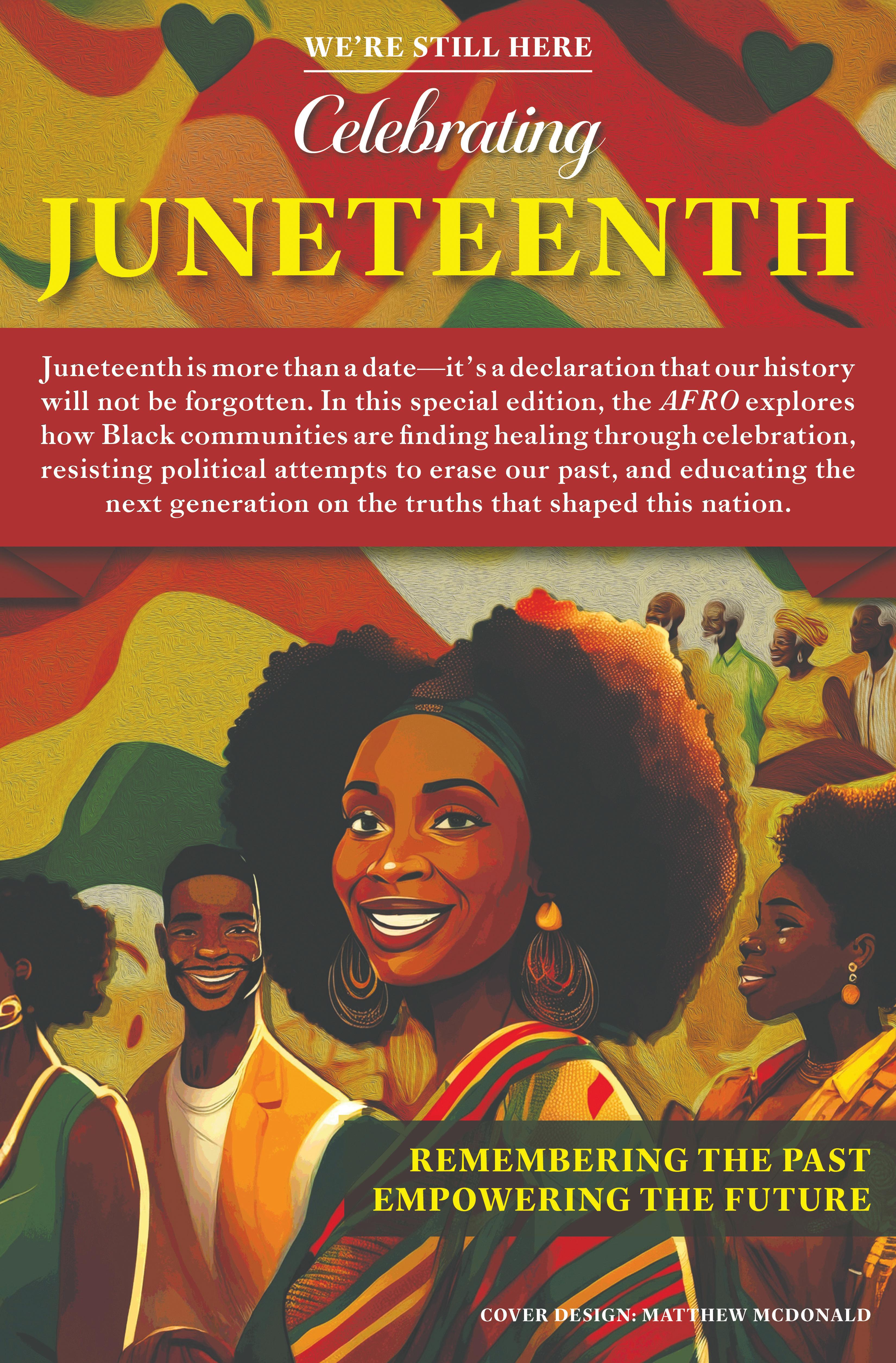







By Andrea Stevens AFRO Staff Writer astevens@afro.com
Juneteenth is a commemorative day that brings together African Americans across the country. It’s a story that keeps the Black community grounded and reminds many of the progress made. As the holiday approaches, historians emphasize that Juneteenth’s legacy runs deeper—and is more complex—than a single day of celebration.
Dr. Akwasi P. Osei, professor of political science and philosophy at Delaware State University, challenges the oversimplified narrative surrounding Juneteenth’s origin.
“Usually the focus has been on the narrative that on June 19, 1865, a Union general informed Black people in Texas that they were free,” Osei said. “That’s too neat a story. The reality is that the South maintained slavery at gunpoint long after it had technically ended.”
Dr. Donna A. Patterson, professor and chair of the department of history, political science and philosophy and director of africana studies at Delaware State University, echoed the need to reframe popular understandings of the day. A Black Texan herself,
Patterson is currently writing a book titled “Making Juneteenth.”
“There’s so much history leading up to that moment.
Juneteenth doesn’t mark the end of slavery—it marks when the last holdouts were finally forced to acknowledge it,” Patterson said. “It’s not just about delay– it’s about resistance to Black freedom.”
While Juneteenth marks a historic turning point, scholars stress its continued relevance today, especially in how it shapes American identity, memory and the ongoing struggle for racial justice.
“People of African descent have been at the center of American history—from the beginning through the Civil War and into the present,” Osei said. “Juneteenth is a reminder of the gap between America’s promise and its reality.”
For many, the holiday is also deeply personal.
“Growing up as a Black Texan, Juneteenth was always significant. It made us think about freedom—and what it really means,” Patterson said.
Acknowledgement of the holiday, however, is far from uniform. It varies across generations and geography, shaped by local traditions, education systems and access to information.
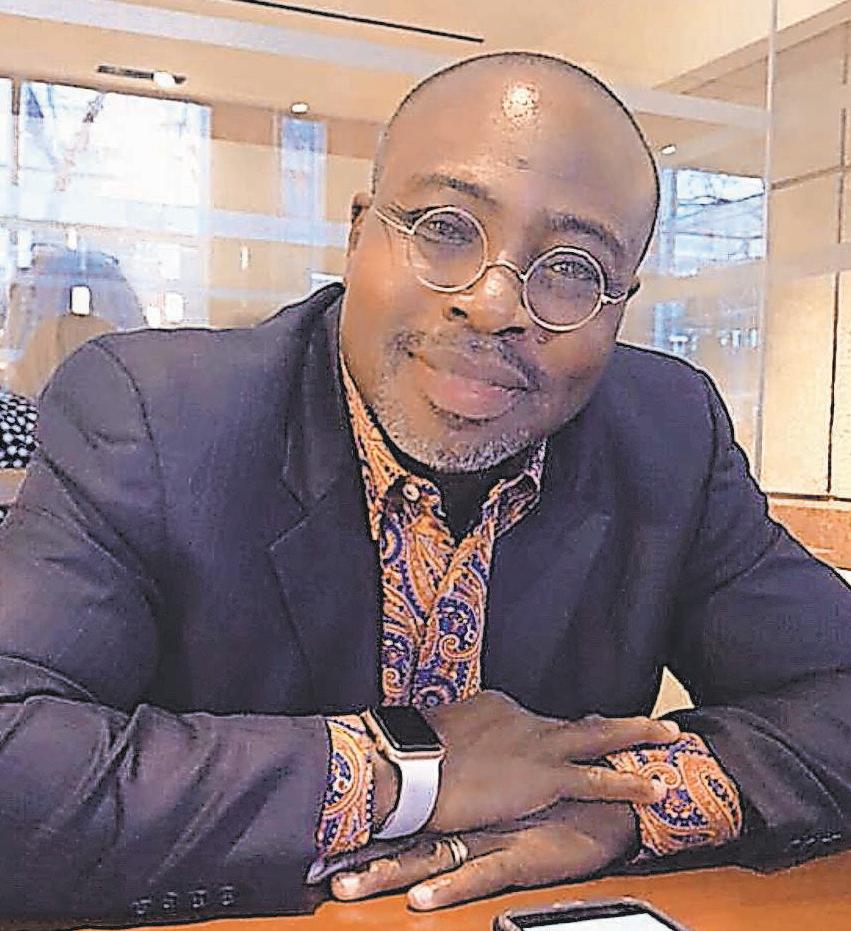
story, pointing instead to the harsh reality of slavery’s persistence beyond its legal end.
“It depends on where people grow up and what they’re exposed to,” Patterson said. “Some regions, like southeast Texas, have always observed Juneteenth. Others are just now learning because of social media or its recognition as a federal holiday.”
Osei noted that awareness of Juneteenth isn’t

necessarily tied to age.
“Age doesn’t play a part. There’s just not enough focus in schools or the media, so people didn’t know. But Black folks have always known what they fought for,” Osei said.
Even before Juneteenth became a national holiday, many
By Tashi McQueen
Staff Writer
AFRO
tmcqueen@afro.com
As political efforts to revise and restrict Black history grow, it is important for parents and teachers to consider how they can preserve the truth of Black history and Black holidays by educating the youth.
Lawrielle West, owner and founder of KwanzaaMe, emphasized that Black culture survives and thrives by sharing the history and celebrating the culture with one another. KwanzaaMe is a company that helps people celebrate Black culture year-round.
“Whether it’s from family member to family member, student to teacher, or neighbor to neighbor, this history has survived because we’ve carried it in our voices, our homes and our hearts,” said West.
“In a time when some people are trying to silence or re-write the past, it’s these personal connections and remembrances that keep the truth alive and the legacy of heritage strong.”
West suggests that families make their own Juneteenth traditions by hosting cookouts, get matching Juneteenth outfits that mean something to their family, plant a garden of remembrance, watch a documentary or share oral histories.
She also advises teachers and parents to seek out local museums, historical markers, cultural events or walking tours and request that the communities you’re a part of have Juneteenth programming.
In 2023, Florida Governor Ron DeSantis (R) led initiatives to revise Black history in schools to say it was beneficial to enslaved persons and rejected the College Board’s African-American studies advanced placement (AP) course. Since the 47th president arrived
“In a time when some people are trying to silence or re-write the past, it is personal connections and remembrance that keep the truth alive and the legacy of heritage strong.”
in office on Jan. 20, he has rolled back federal inclusion, diversity and equity initiatives and created an environment where private businesses are discouraged from promoting Black initiatives and opportunities.
Using an executive order, the president aimed to reduce “the influence of a divisive, race-centered ideology” in the Smithsonian Institution and prevent them from promoting “narratives that portray American and Western values as inherently harmful and oppressive.”
The Smithsonian has since closed its diversity office in response to the diversity and inclusion order but it, nor its affiliates such as the National Museum of African American History and Culture, have yet acted to comply with this order.
With the Republican Party holding the majority in both chambers of Congress and the White House, larger scale roll backs and changes are largely possible making initiatives to maintain Black history crucial.
Darius Johnson, project director for the Chesapeake Heartland highlighted three practical ways to ensure that Black youth learn about Black History despite what is going on politically. Chesapeake Heartland is an online archive devoted to
preserving and sharing Black history from the Chesapeake region.
Those three include compensating students to be storytellers, using local stories to deepen national understandings and turning history into a physical experience.
“When students are paid to participate in programs like Hip Hop Time Capsule, they don’t just consume history—they remix and reinterpret it,” said Johnson.
“Now in its fifth year, the program empowers students to turn archival materials—family photos, gospel tapes and historical documents—into original songs, poetry and visual art. This approach frames hip hop as historical collage, helping youth make sense of the past, provides them with real-world creative and job skills, and a $1,200 stipend for two weeks of experiential learning.”
Johnson suggests that all students learn about national icons such as Harriet Tubman, Frederick Douglass, Gloria Richardson, but says youth should have the opportunity to pair those stories with narratives from their own families and neighborhoods to make it more personal. He said it helps them see that their family names and towns are part of America’s broader freedom story.
“History becomes real when students walk where it happened,”
communities—especially in southeast Texas—had long preserved it as a day of remembrance and celebration. Its legacy stretches far deeper than recent headlines.
As national recognition grows, both Patterson and Osei stress that observing Juneteenth should involve more than festive gatherings.
“We shouldn’t just celebrate Juneteenth,” Osei said.
“It should be a commitment
to understanding the truth and to making sure the promise of freedom is fulfilled.” Patterson agrees, urging deeper engagement with the holiday’s meaning.
“Juneteenth invites us to ask not only how we celebrate, but how we reckon—with history, with freedom and with the ongoing journey toward equality in America,” Patterson said.

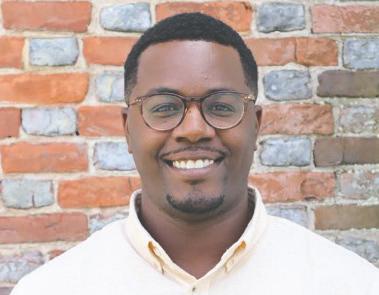

By
At the AFRO -American Newspapers, dba AFRO News, we believe deeply in the power of memory and the necessity of celebration. That’s why this Juneteenth, we are proud to present a special edition dedicated not only to commemorating the day freedom finally reached the last of the enslaved in Galveston, Texas—but also to reflecting on what that freedom means in 2025 and beyond.
“Juneteenth
Juneteenth is now a federal holiday, but long before that recognition, Black communities across the country marked this day with joy, reverence and resolve. At the AFRO, we’ve been documenting Juneteenth commemorations—and the broader Black freedom journey—since our founding in 1892. Our archives are filled with images of parades, speeches, church services, and community gatherings, all pointing to the truth that while freedom was delayed, it has never been denied.
This year, we’re not just telling the story—we’re gathering to celebrate it. On June 18, we are honored to host our annual AFRO Juneteenth


Breakfast at The Center Club in Baltimore. This inspiring event will bring together civic and community leaders to recognize five institutions committed to educating and empowering future generations: HBCUs Coppin State University, Morgan State University, Bowie State University and the University of Maryland Eastern Shore (UMES), as well as the University of Baltimore, which has been designated a Predominantly Black Institution (PBI) by the U.S. Department of Education.
These universities embody the spirit of Juneteenth by providing
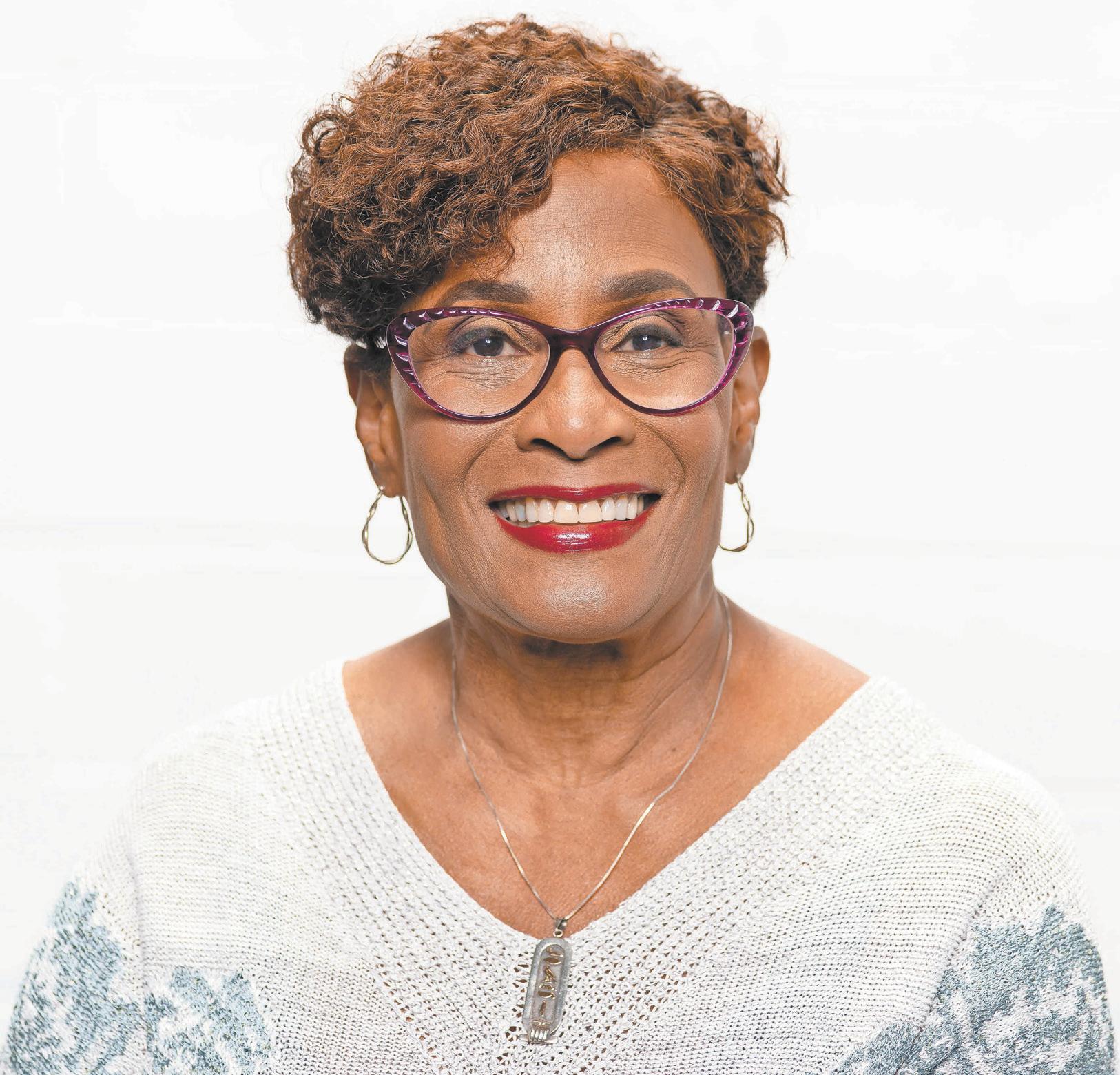
week,
on Juneteenth as both a
and a call to action. As Juneteenth events take place across the nation, she urges readers to honor the holiday by remembering its roots, embracing its lessons and continuing the work of liberation.
access, advancing opportunity, and investing in Black excellence. In that same spirit, this special edition of the AFRO offers stories that explore the ongoing meaning of Juneteenth— its lessons, its legacy, and its place in today’s America.
Political reporter Tashi McQueen explores how Juneteenth is being taught in classrooms,
and how educators are navigating the political and cultural minefields of truth-telling.
Later in the edition, she also explores the holiday– not as a historical footnote– but as a gateway to healing.
Andrea Stevens provides a rich and sobering account of Juneteenth’s origins, reminding us that the

two-and-a-half-year delay in delivering freedom to the enslaved was not accidental—it was a direct result of economic greed and systemic oppression. Her story helps us honor Juneteenth with the full context it deserves.
AFRO reporter Megan Sayles takes a critical look at how corporate America is recognizing Juneteenth. While some companies have embraced the holiday in public-facing ways, many are simultaneously walking back equity, diversity and inclusion initiatives. Sayles invites us to ask the hard question: what does it mean to celebrate Black freedom while undermining Black advancement? Amid the celebrations, we must also acknowledge a difficult truth: many businesses still plan to stay open on Juneteenth, treating it as just another workday. We understand the demands of commerce, but we also know the power of pausing to reflect. Holidays are not only for barbecues and bargains—they are for remembrance. And for Black America, Juneteenth is sacred ground.
This year’s edition of the AFRO is both a keepsake and a call to action. We hope you’ll read it, share it and discuss it—with your family, in your classrooms, at your churches, and around your community tables. And that you’ll also participate in Angela Rye’s “State of the People Power Tour” and National Assembly which comes to Baltimore June 19-21.
While Juneteenth marks the moment freedom was finally announced, it also reminds us of the ongoing work of liberation. Freedom isn’t static—it must be defended, deepened, and lived out, every single day. From our AFRO family to yours: Happy Juneteenth. May we remember, may we celebrate and may we keep moving forward.
Many thanks to AFRO Managing Editor Alexis Taylor, the journalists who contributed their time and talents and to all who helped produce this edition and plan our nearly sold out Juneteenth breakfast. Visit www.afrotix. live to purchase tickets!

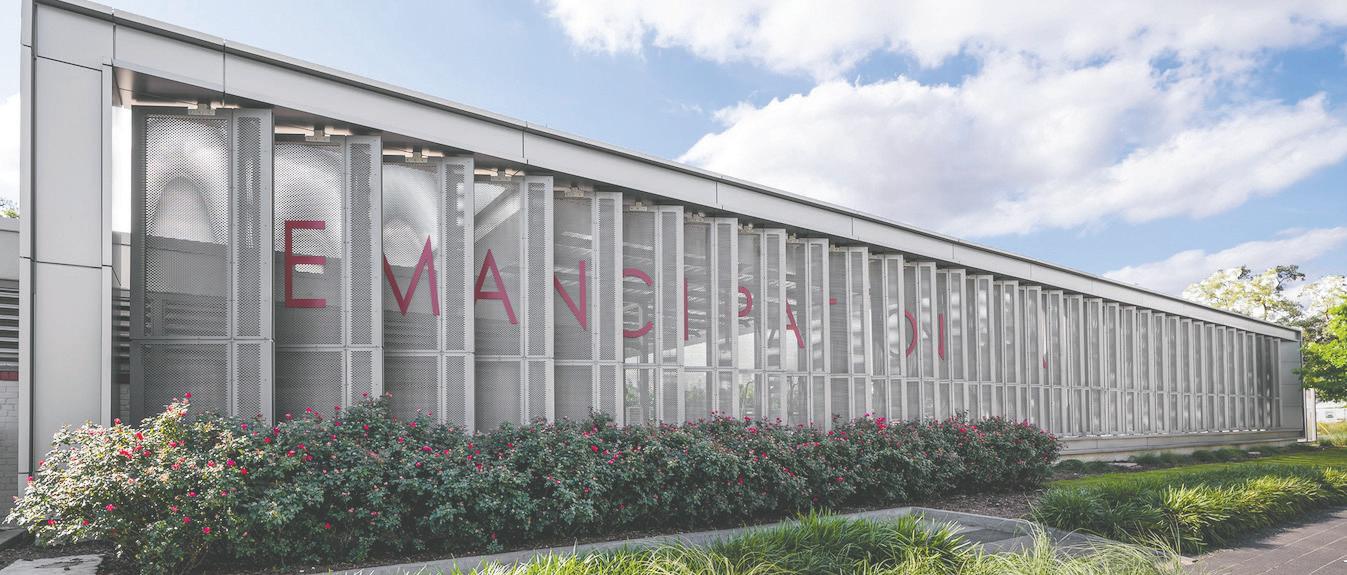
Houston’s Emancipation Park was born from freedom— here’s how it’s honored today
By Megan Sayles AFRO Staff Writer msayles@afro.com
Just seven years after they learned of their liberation, a group of formerly enslaved Black Texans banded together in 1872 to
purchase Emancipation Park in Houston. The 10-acre park was meant to serve as a place for African Americans to celebrate their freedom, and until the 1950s, it was the only public park and swimming pool open to the Black community.
Today, Emancipation Park Conservancy

works to honor the legacy of the park by preserving the historical grounds and cultivating programming that ensures people understand its origins and role in the fight for freedom and equality.
“Juneteenth remains a cornerstone of the park’s identity, with annual celebrations that bring people together to commemorate resilience, progress and cultural heritage,” said Jennifer Spriggs, executive director of Emancipation Park Conservancy. “We are the center of the community. The park continues to stand as a living testament to the strength and determination of our ancestors and those who fought for freedom. We work to ensure that their legacy remains vibrant and impactful.”
This year, the conservancy has a line-up of dynamic events to celebrate Juneteenth—the day in 1865 when slaves in Galveston, Texas, finally learned they were free, more than two years after the Emancipation Proclamation.
Its programming includes an exhibit and musical tribute honoring the late Texas Congresswoman Sheila Jackson Lee; a family fun day; a science, technology, engineering and mathematics (STEM) learning lab; and a youth sports camp. The conservancy will also be uplifting local Black-owned businesses and engaging in community service.
“The park continues to stand as a living testament to the strength and determination of our ancestors and those who fought for freedom.”
“Ultimately, the holiday serves as both a reflection on the past and a commitment to shaping a more equitable future. Balancing celebration with reflection, education and advocacy is at the heart of Juneteenth’s significance,” said Spriggs. “The holiday is a joyous occasion, a solemn reminder of the ongoing fight for racial justice and an acknowledgement that the journey toward justice is ongoing. We believe in incorporating educational programs, historical discussions and calls to action alongside traditional celebrations.”
That balance is personal for Jacqueline Bostic, vice chairman of Emancipation Park Conservancy. Her great-grandfather, John Henry “Jack” Yates, was one of the formerly enslaved men who spearheaded the purchase of Emancipation Park.
Bostic has learned that the park not only served as a space for celebration after its founding but as a meeting place for communities to come together to address the challenges they faced.
“When people came out of slavery in the


state of Texas, which was two years after the Emancipation Proclamation, there were no institutions, no schools, no anything,” said Bostic. “They were simply freed as slaves, and then they had to evolve and build their own communities.”
Her great-grandfather played an instrumental role in initiating this community-building with the founding of the park. Yates also became the first African American to construct a two-story house in Houston’s Freedmen’s Town— a home Bostic would later grow up in.
“Even though I was not alive at the time, I was able to learn about it because he did so much in the community,” said Bostic. “That gave me the ability to be inspired and to understand that if a person just coming out of being enslaved can do so much and have a
sion, then certainly I have more opportunities to do as much and more for my community.”

By Tashi McQueen AFRO Staff Writer tmcqueen@afro.com
Experts say Juneteenth, which is celebrated on June 19, can provide generational healing for Black Americans.
“Juneteenth provides Black Americans with a culturally sanctioned space to acknowledge the depth of generational trauma while simultaneously celebrating survival and resilience,” said Rev. Dr. A’Shellarien Addison, CEO of Desakajo’s Flo and an Army Chaplain. “This dual nature— mourning and celebration— mirrors the complex emotional landscape that many Black families navigate daily.”
Addison said to truly understand Juneteenth’s healing power people must recognize that Black American freedom is something that they still have to defend and fight for, whereas White Americans have historically experienced liberty as a birthright.
“The holiday serves as a collective therapy session, allowing communities to name the trauma without minimizing its impact, honor the ancestors who endured unimaginable suffering, celebrate survival against insurmountable odds and envision liberation as an ongoing process rather than a completed event,” said
“Juneteenth provides Black Americans with a culturally sanctioned space to acknowledge the depth of generational trauma while simultaneously celebrating survival and resilience.”
Addison.
Though former president Abraham Lincoln issued the Emancipation Proclamation in 1863, which declared enslaved persons in Confederate territories free, it was not until June 19, 1865 that a vast majority of enslaved persons were liberated. On that day, Union troops arrived in Galveston, Texas to notify around 250,000 enslaved African Americans that they were freed.
A year later, the first Juneteenth celebration was held at Emancipation Park in Texas by freed African Americans under the name, Jubilee Day. According to the National Archives, not only was it a day of celebration, it was a time to inform Black people about how to vote.
“Juneteenth, to me, is sacred ground,” said Tammy Triolo, founder of PCQ Consulting.
“It is where truth, memory and reclamation converge.”
“If we’re serious about honoring Juneteenth, we must
be serious about emotional restoration,” added Triolo.
Addison pointed out how Juneteenth offers a different perspective on Black liberation.
“For generations, the story of Black liberation has been told through the lens of White benevolence—focusing on Abraham Lincoln’s Emancipation Proclamation rather than the resistance, rebellion and resilience of enslaved people themselves,” said Addison. “Juneteenth shifts this narrative, centering Black agency and self-determination.”
“This reclamation is profoundly healing because it restores dignity to ancestors who fought for freedom,” continued Addison. “[It] empowers contemporary Black Americans to see themselves as inheritors of strength, challenges internalized narratives of helplessness or dependency and creates space for Black joy and celebration without White permission or validation.”

BGE celebrates Juneteenth as an important point of reflection for all Americans — a time to understand that the struggle against racial injustice is far from over, and that we must all work for true equality. At BGE, we’re all in as we embrace a culture of respect, equity, and inclusivity. We’re working together with our employees and our customers to build on what’s important to everyone. bge.com/Diversity





By Megan Sayles AFRO Staff Writer msayles@afro.com
As Juneteenth approaches, Black consumers are increasingly split on whether to support major retailers like Walmart
and Target— companies that have faced growing scrutiny for scaling back their diversity, inclusion and equity efforts.
Amid calls for store boycotts from leaders such as Rev. Dr. Jamal Bryant, of Georgia’s New Birth
Missionary Baptist Church, some shoppers are choosing to withhold their support entirely, while others say affordability and access leave them with few alternatives.
Debbie Jones, a resident of Baltimore’s Irvington

neighborhood, said she didn’t approve of Walmart or Target pushing products for Juneteenth. She also said people should be avoiding the stores and, instead, supporting Black businesses.
“I don’t think anyone should be going to any of those stores because it’s not right what they’re doing,” said Jones, speaking on Walmart’s decision to still sell Juneteenth items while rolling back inclusion and diversity efforts.
“They’re not for the Black folks,” she said.
This year, Walmart is quietly offering a limited assortment of themed merchandise online to mark the holiday commemorating Black liberation. Target has yet to roll out anything for 2025. Both retailers have faced backlash in previous years for selling Juneteenth-themed products that many deemed stereotypical or culturally insensitive. Walmart, for example, was criticized for releasing a Juneteenth-themed ice cream flavor under its Great Value brand in 2022.
Both retailers have also made public promises to support the Black community— pledges that, in recent months, they’ve scaled back through cuts to diversity programs, partnerships and
“Why can’t the Black community spend their money where they’re wanted?”
internal initiatives.
The AFRO reached out to Target and Walmart for comment on their plans for Juneteenth. Brian Harper-Tibaldo, a Target spokesperson, said the company’s headquarters would be closed in observance of the holiday, but provided no further details.
Aside from the limited selection of Juneteenth items on the retailer’s online marketplace, a spokesperson for Walmart said stores and supply chain facilities will receive “starter kits” to celebrate the holiday. The kits include information on the background of the holiday and items to put on events for employees.
“They’re able to use that as a platform that they can then build off of to put together a meaningful celebration or moment where they can pull together their teams of associates,” said James Carter, spokesperson for Walmart. “It’s really about celebrating the community.”
Some consumers say they don’t buy the act.
Faisal Konde, 31, believes any activism or good-faith efforts by the companies are largely performative, but he knows many consumers feel limited by their financial resources.
While the construction worker is in favor of spending his Black dollars in the Black community, he also recognizes that big retailers offer more affordable prices than some of their counterparts.
“Economics come into play. It’s cheaper to go to Walmart— I get it,” said Konde. “I wouldn’t expect people to go and spend money that they don’t have.”
Still, he says Black dollars need to stay in the Black community.
“Why can’t the Black community spend their money where they’re wanted?” quipped Konde. “If we do that, we may find situations for African Americans and Africans improve.”
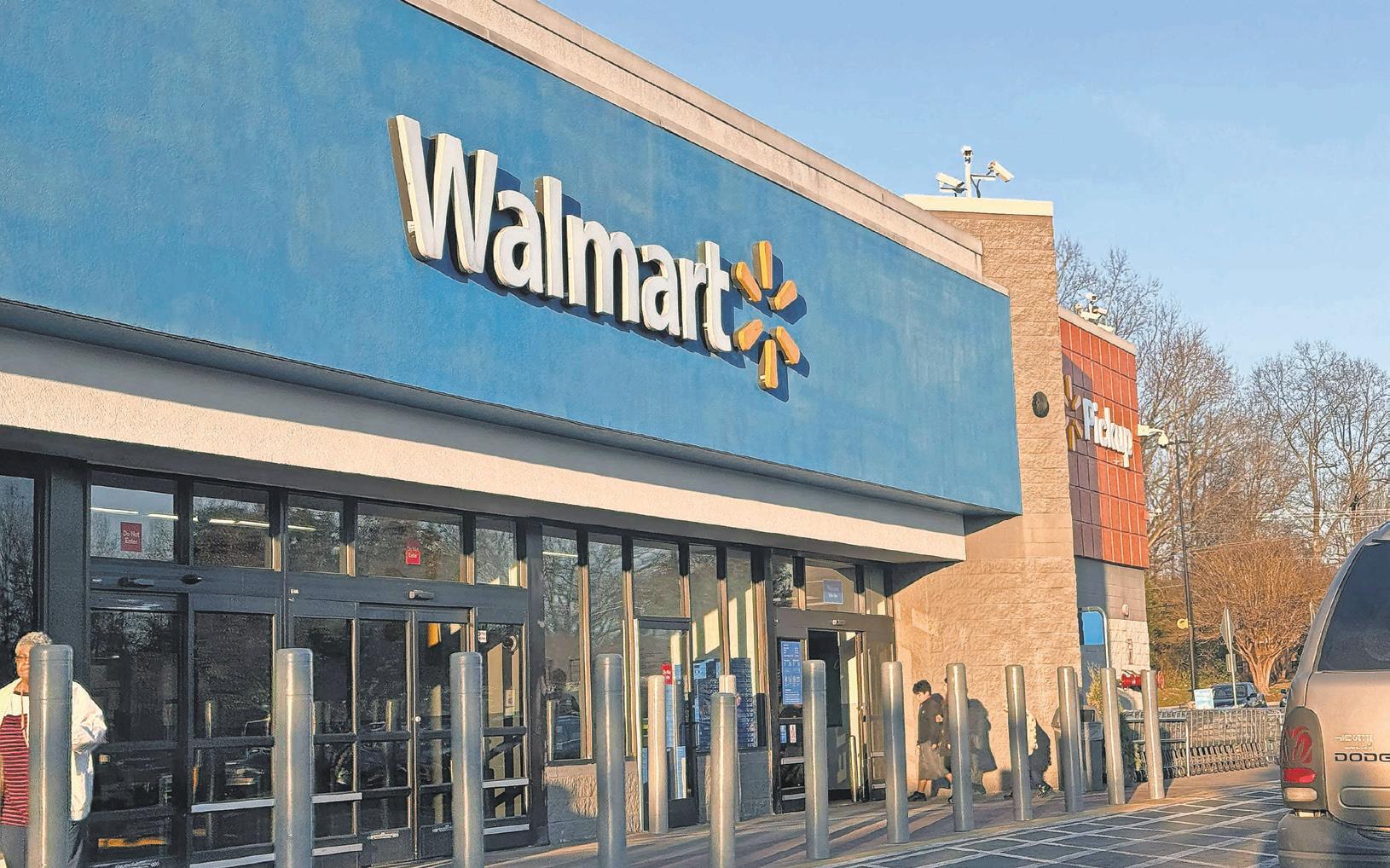

By Aswad Walker
Teeba Rose recently had breakfast at the farmers market he grew up working in, the Farmers Market Partners. The establishment, run by his mother Thomasine Johnson, has a vendor lineup that’s roughly 90 percent Black.
“I bought a delicious $8 breakfast, paying $12, and told my very courteous waitress, ‘Keep the change,’” Rose shared. “She restated to me with surprise, ‘Your meal is just $8.’ I said, ‘Yes ma’am– thank you.’”
Rose shared this slice-oflife moment to make a point.
“We never teach our kids what to invest in [each other], so we buy shiny stuff and suffer, unlike Asians and others,” said Rose, one of the owners of the Community Collective (formerly known as the Power Center), one of the largest Black-owned venues in the city of Houston. “We don’t have a money problem. We have a ‘what to do with money’ problem.’”
Rose, a native Houstonian, laments the fact that individuals of other cultures have historically used their money and resources within their culture, while Black people —for the most part– have not.
“Anything we make, everyone else wants to either duplicate or get us to do it for them instead of us doing for ourselves,” she said. “What we have harnessed and found the ability to do is use music, color, culture, clothing to incentivize, motivate and shape everyone else’s culture because everyone wants to be like ours. The one thing we have decided not to do, which is simply a choice, is to buy within our own culture.”
What Rose is saying is neither new nor “news” to Black people. But how do we actually change this reality? What concrete steps, what gameplan, can we use to institutionalize and normalize Buying Black?
Reverend Al Sharpton, head of the National Action Network (NAN), has the right idea with his organization’s “Buy-cott” campaign.
Buy-cott
In the wake of Donald Trump’s re-election and promises to end equity, diversity and inclusion initiatives, several major corporations, including Walmart and Target, reversed course on the inclusion, diversity and equity commitments announced after George Floyd’s May 25, 2020 murder.
While many called for supporters to boycott establishments moving away from their diversity and inclusion practices, Sharpton has channeled the great civil rights leader, Dr. Martin Luther King, and called for a “buy-cott,” directing consumer dollars to corporations that support equity and diversity.
“As we celebrated the legacy of Dr. King while Donald Trump took the oath of office, I promised to not only boycott companies that abandon their DEI (diversity, equity and inclusion) commitments but support those who upheld them,” Sharpton said in a statement. “Costco has stood by their DEI programs because they see them as both



the right thing to do and a smart business strategy. NAN will live by its own promise to support the companies who support us.”
Selective patronage
Sharpton’s “buy-cott” has a similar historical precedent.
The Civil Rights-era strategy of “selective patronage,” introduced to the movement by Leon Sullivan, added “teeth” to the sit-ins and lunch counter protests. Selective patronage was all about Black people refusing to patronize businesses that refused to hire Black people, and fully supporting those that did.
During Dr. Martin Luther King Jr.’s last public address on April 3, 1968 did more than just challenge attendees to boycott anti-Black businesses. He called for a “bank-in” and “insurance-in.”
The “buy-cotts” were a form of removing Black dollars from White-owned banks and insurance companies and investing that money in Black-owned institutions.
After issuing that challenge King said, “Now these are some practical things we can do,” regarding “building a greater economic base.”
The challenges to buying Black and the benefits of
doing it have been discussed thoroughly over the years. But without offering a specific game plan (“some practical things we can do”), making Buying Black the norm is difficult, at best.
The Defender spoke with various Houston-area Buy Black advocates to get their take on the game plan needed.
Develop a “Buy-Black” mindset
Rose believes the first step in normalizing Buying Black is shifting mindsets.
“We first have to realize everyone else outside of your group is utilizing your likeness and your product to make tons of revenue that will never return to your community,” said Rose, who believes a changed mindset can lead to changed actions.
“How do we locate and use Black vendors? You say to yourself, the first thing I’m gonna do is look for a person like me to give this dollar.’
You’re gonna buy a car? Look for the Black sales agent.
You’re gonna buy a house? Look for the Black realtor. Look for the person who looks like you and needs your support, then support them. In turn, these people will look for you and support you,”
stated Rose.
Nailah Nelson, who directs the Buy Black Marketplace, which is held every first and third Saturday of the month from noon to 5 p.m. at the Shrine Cultural and Event Center (5309 Martin Luther King Jr. Blvd, Houston 77021), believes developing “Buy-Black” minds should happen everywhere Black people exist.
“The importance of buying Black should be taught in
the home with families. It should be a topic of discussion among friends and yes, a focal point in the church,” said Nelson.
Attend Black business networking events
Dr. Asheli Atkins, president and CEO of the Greater Houston Black Chamber (GHBC), suggests attending networking events.
“We have our Network and Nourish, our monthly, second Tuesday event, which allows the public, anywhere from business owners to people in public policy to some of our corporate members and consumers, people who work 9-to-5s, to come and network across networks,” said Atkins.
Other actions suggested to help increase our Buy Black opportunities include utilizing resources that list existing Black businesses (HoustonBuyBlack.com, BlackDirectory.com, WeBuyBlack.com, BuyBlack.org and BlackBookHouston.com). Another involves identifying entities and organizations offering Buy Black opportunities.
Below, the Defender compiled a list of tangible, easyto-do Buy Black action steps:
Buy-Black Action Steps
Institutions
Black faith institutions identify, promote and increase spending with Black businesses
• Local HBCUs and educational facilities focus on buying more from
Black businesses
• Black-owned businesses, use Black accountants, Black lawyers, vendors, etc.
• Black organizations cater your events via Blackowned establishments. Corporations set a budgeted amount to spend with Black businesses
Consumers
• Set weekly/monthly dollar or percentage spending goals with Black businesses.
• Take at least one day a week to advocate and advertise for your favorite Black businesses, especially online.
• Purchase Black books, subscribe/donate to Black media and buy artwork from Black-owned shops. Increase your commitment to supporting a specific number of Black businesses, especially during the holiday season, (e.g., on Juneteenth, I will specifically support at least three Black businesses)
• Ask for a Black representative when patronizing non-Black-owned businesses
• Open an account at the Black-owned bank – Unity Bank Utilize Black-owned service providers – plumbers, electricians, doctors, dentists, etc. This article was originally published by The Houston Defender.
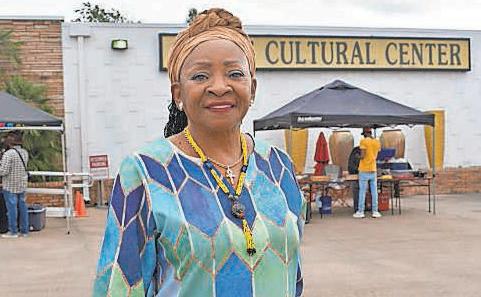

By Roger House
Maryland’s Gov. Wes Moore (D) recently caused a stir in the movement for reparations in his state. The nation’s only Black governor, he vetoed a bill to assess the wrongs of slavery and Jim Crow and propose various remedies. The act had been championed by the state legislature and the Black Caucus, and there is even now talk of overriding his veto.
However, Maryland’s Black political leadership may be overlooking an alternative strategy to address the politics of reparations. It draws inspiration from how America handled the rebuilding of Europe and Japan after World War II. And Moore, as the nation’s only sitting Black governor, can reframe the issue’s politics and enhance Black community self-governance. He can initiate a summit to establish a development bank for the descendants of slavery and Jim Crow.
What follows is a description of how such a bank can benefit the quest for reparations, why Moore was probably wise to veto the state bill and why Maryland is the place to incorporate a “reparations bank.”
After World War II, the U.S. led the effort to establish a development bank to finance the reconstruction of war-torn Europe and Japan. The multilateral initiative was crucial to a broader package of assistance that came to be known

accounting service.
The development bank would primarily seek private donations and corporate depositors and would pool the funds and collaborate with Black-owned banks, credit unions and attuned financial institutions to vet proposals for planning grants, microfinancing and long-term loans. It could invest in small-scale projects in areas such as cooperative housing and stores, community development corporation charter schools, healthcare and infrastructure projects, and programs for occupational training and entrepreneurship. It would have a rotating board of directors selected from dues-paying organizations that represent the foundational Black community — namely, those that suffered the wrongs of slavery and Jim Crow.
than Black Americans, most groups tend to oppose the idea of reparations, and the empathy for the Black Lives Matters movement was short lived, according to the Pew Research Center. And Democratic Party leaders have expressed concern about the effect of identity politics in the presidential election.
As such, advocates may need to explore alternative strategies other than lobbying for a public accounting in the states. The development bank proposal would rely on private funding rather than public.
as the Marshall Plan. In a similar fashion, Moore can take the lead to charter a bank to finance the reconstruction of distressed Black communities. Beyond the current efforts of advocates to pursue restitution through piecemeal claims, a bank could be a more efficient way to center the creation of Black institutional wealth. Moore could oversee a summit of political leaders and community banking professionals to craft a mission statement for the reparations bank. It could include members of Maryland’s legislative
Black Caucus, the Congressional Black Caucus and consultants from Black-owned financial institutions like the Harbor Bank of Maryland. The charter would designate the entity under federal regulations for community development financial institutions and Maryland’s community banking laws. Though located in Maryland, the fund would invest in worthy projects for moderate-income Black communities across the country. It would be administered by banking professionals and monitored by an independent
Moore was wise to veto the state bill. American political culture has changed dramatically since the days of racial justice activism after the 2020 police killing of George Floyd. During that period, advocates for reparations in California, Illinois and New York found sympathetic allies for legislation to study the subject. But even those initiatives skirted the issue of cash reparations in favor of noneconomic measures like a formal apology.
Since then, public sentiment has turned against proposals for racial remedy, and especially the use of public funds for restitution. Other
The Trump administration is openly dismissive of Black history and its meaning for contemporary justice. On the 250th anniversary of the American Revolution, for example, the president condemned diversity policies in the armed services during a speech at West Point. Yet Trump brushed aside the historic role of 700 Black patriots — free and enslaved — that participated in the founding of the U.S. Army under frigid conditions at Valley Forge, Pennsylvania.
And, though speaking to cadets during the Memorial Day weekend, he neglected to describe how ex-slaves started the Memorial Day holiday after the Civil War.
The first commemoration of American war casualties is believed to have occurred on May 1, 1865. That’s when emancipated Black workers unearthed a mass grave of
Union soldiers near a Confederate prison in Charleston, South Carolina. They reburied the men in a dignified manner and honored their sacrifices to preserve the Union and to end slavery. Additionally, Maryland is the place to get the ball rolling. In criticizing Moore’s veto, the legislative Black Caucus noted that the statehouse in Annapolis is less than a mile from the old slave port at the city dock. Yet Maryland symbolizes far more in Black history and contemporary political culture — foremost, its distinction for a high level of statewide political influence. This trend began in 2022 with the election of Moore as governor and Anthony Brown as attorney general — the first Black leaders elected to those offices in the 237-year history of the “Free State.” Meanwhile, Angela Alsobrooks extended the momentum in her winning campaign for a U.S. Senate seat last year. Maryland is thus the only state where representatives of a sizable Black community have deep roots in the political culture. As such, it is arguably the symbolic capital of Black America. And as governor, Moore is in a position to host a historic summit for the establishment of a development bank for the descendants of slavery and Jim Crow. A version of the commentary appeared in The Hill and Word in Black.
By Dayvon Love
Gov. Wes Moore’s stated rationale for vetoing SB 587, which would have established a commission to study the viability of and methodology for implementing a reparations policy in Maryland, is that he believes that we don’t need to do any more studies and should take action instead. I agree with that, but my organization presented a reparations proposal to the administration in the summer of 2024 and I was told that the budget deficit would make any move on distribution of resources via a reparations policy a nonviable political option.
The study bill was a compromise based on their feedback about pursuing the kind of bold action that the governor says he wants to enact. The commission would have concrete recommendations for the development of reparations policies in Maryland that would be helpful in pursuing the action that the governor says he supports. The work that needs to be done in the reparations movement is developing a plan for how to operationalize a reparations policy. It is not as simple as handing out checks. Questions of land/property acquisition, development and investment in Black community-controlled financial institutions and deciding the best mechanisms for the distribution of cash compensation are the types of reparations endeavors that require precise planning and strategy that the commission would be
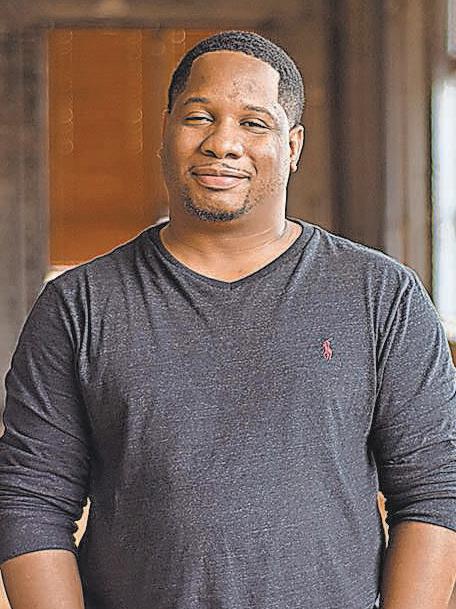
take action now.
In Gov. Moore’s veto letter he says that his administration has brought a culture of repair and listed some of the administration’s initiatives as evidence of this. He mentions the increase in procurement dollars from state government to Black businesses, support for Black homeownership, increased funding for HBCUs and his administration’s mass pardons for cannabis possession charges. While these are good policy positions, they don’t address the scale and structures of White supremacist violence that reparations policies would address. Additionally, none of these policies were couched in terms of reparations when they were implemented. I believe the governor is committed to advancing policy that is good for Black people. I also believe that he is aware of the way that reparations is generally negatively perceived by White people.
Black sovereignty. The victory of Black people during the Haitian Revolution against the French and other colonial powers to gain independence inspired armed rebellions of enslaved Africans in the U.S., including Nat Turner, Denmark Vessey and Gabriel Prosser. This combined with Black people’s collective decision to participate as soldiers in the Union Army during the Civil War (that was losing to the Confederate Army up until that point) are the foundational actions taken by Black people that led to the end of chattel slavery.
important than changing the minds and hearts of White people. To the extent that Black people have political power to pose a threat to the status quo it is through increased access to electoral power made possible by the Voting Rights Act.
instrumental in figuring out. At this point, the ball is in his court to offer reparations policies and work with the Legislative Black Caucus of Maryland and organizations like my own (Leaders of a Beautiful Struggle) to successfully implement them. Quite frankly, his political integrity and standing amongst
the masses of Black people is dependent on whether or not he follows through with his commitment stated in his rationale for vetoing the bill. Meanwhile, we need to urge the Legislative Black Caucus to lead the charge to override the veto in case the governor does not live up to the commitment he has made to
Historical narratives of Black social movements often, erroneously, emphasize efforts to appeal to the benevolence of sympathetic White people. The societal focus on the aspects of Dr. Martin Luther King Jr.’s work that engaged in appeals to White people’s moral consciousness clouds our collective understanding of the work that was most effective in producing any progress that Black people have made. The reality is that the basis of Black people’s capacity for our collective advancement has been militant political and revolutionary activity, rooted in the development of
Dominant historical narratives emphasize stories of an abolitionist movement with sympathetic White people as the basis for ending chattel slavery. While it is true that there were some White people that made meaningful contributions to the pursuit of Black freedom, it is the militant and revolutionary activities that I mentioned earlier that produced political pressure. That pressure was needed to force the American social order to see the end of chattel slavery as a worthwhile concession in the face of the prospect of the destruction of the American social order by militant rebellion.
The Civil Rights Act of 1964 allowed for Black people to have greater access to the American mainstream. It was the Voting Rights Act of 1965 that had an ideological diverse set of proponents, many of whom were revolutionary Black nationalists that believed that seizing power was more
Former President Obama and Gov. Wes Moore represent a theory of change that makes appeals to the White supremacist plantation structure of this society central to their strategy for delivering results to our community. In essence, making a more comfortable plantation instead of seeking to destroy the fundamental inequitable structure of this society.
The recent decision by Moore to veto the reparations bill demonstrates the limits of this theory of change. No matter how decent, bright or accomplished a major Black political figure is, if that person is operating from a theory of change that relies on garnering White mainstream support, policy proposals like reparations will never be viable, hence the veto.
I think our community learned the lesson we needed to learn from the Obama presidency, that Black faces in high places does not equate to progress for our community. Especially if that Black face is not committed to militant, revolutionary political warfare against the American plantation. In fact, those Black faces are prone to be counter revolutionary forces in our community.

By Tashi McQueen AFRO Staff Writer tmcqueen@afro.com
The AFRO will soon honor Maryland’s historically Black colleges and universities (HBCUs) at its third annual Juneteenth Breakfast, recognizing their vital role in advancing education and the state’s economy.
The breakfast will take place from 8:30-10:30 a.m. on June 18 at the Center Club. The theme this year is “Rooted in Freedom, Rising Through Education.”
This year’s honorees include Bowie State University, Coppin State University, Morgan State University and the University of Maryland Eastern Shore (UMES), the state’s HBCUs, along with the University of Baltimore, a predominantly Black institution.
Ahead of the event, Heidi M. Anderson, president of UMES, thanked the AFRO for “recognizing and continuing to celebrate the contributions of HBCUs to the nation’s educational landscape,” said Anderson.
“UMES is committed to academic excellence and ensuring that students who want a quality education have the support and foundation they need to succeed in the future. We are proud of the work we do–particularly in science, technology, engineering and math fields–preparing young men and women to achieve both personal and professional success.”
According to the United Negro College Fund’s 2024 report, Maryland’s four public HBCUs generate an economic impact of $1.2 billion annually. UMES alone contributes $351.3 million in total economic impact to the state’s local economy.
The University of Baltimore will also be recognized for its service to the community.
“For the past 100 years we have been not only the University of Baltimore – but also, the University for Baltimore,” said Kurt Schmoke, president of the University of Baltimore. “We are proud to be recognized by the AFRO, along with the state’s outstanding HBCUs, for our role in nurturing community
leaders.”
Sponsors include Coppin State, UMES, Associated Black Charities, Securityplus Federal Credit Union, Wylie Funeral Homes, Greater Baltimore Medical Center and Baltimore Gas and Electric Company.
Juneteenth, celebrated annually on June 19, marks the day in 1865 when Union Gen. Gordon Granger arrived in Galveston, Texas, and announced that all enslaved persons were free—over two years after the Emancipation Proclamation was issued by then-President Abraham Lincoln.
Former President Joe Biden signed Juneteenth into law as a federal holiday in 2021. Since 2023, the AFRO has hosted an annual Juneteenth Breakfast to commemorate this joyous and history-filled holiday, celebrate Black freedom and honor those continuing to pave the way for African Americans.
Please visit afrotix.live to purchase tickets to the event.
For more information, contact dhocker@afro.com.

By Andrea Stevens AFRO Staff Writer astevens@afro.com
Maryland Baltimore City
East Baltimore 2nd Annual Juneteenth Event
The East Baltimore Historical Library is hosting a celebration of history and culture in honor of Juneteenth. There will be pony rides, face painting, snowballs, food trucks and more!
Date: 6/19/25
Time: 3:00 p.m.-7:00 p.m.
Location: Eager Park

900 N. Wolfe Street Baltimore, MD 21205
Cost: Free, RSVP Eventbrite
Jubilee: A Celebration of 20 Years of The Lewis, Black Cultural Expression, Freedom, and Music!
This event will honor Black brilliance and creativity. This family friendly event will be held at the Reginald F. Lewis Museum. It will include live performances, great food and interactive art.
Date: 6/19/25
Time: 11:00 a.m. - 6:00 p.m.
Location: 830 E. Pratt St. Baltimore, MD 21202
Cost: Free Juneteenth Garden Celebration at Allen AME Church
Allen AME Church is hosting a gardening event fit for the whole family. Join them as they eat, dig and plant with a purpose, to celebrate the emancipation of enslaved Black Americans.
Date: 6/21/25
Time: 10:00 a.m.-12:00 p.m.
Location: Allen AME Church 1130 West Lexington Street Baltimore, MD 21223
Cost: Free, RSVP Eventbrite
Wicomico County
Eastern Shore Juneteenth Parade and Festival
The Eastern Shore Juneteenth non-profit organization is hosting a parade and festival in an exciting new way. The parade will feature a marching band, dance groups, antique cars and much more!
Date: 6/21/25
Time: 1:00 p.m.- 6:00p.m.
Location: Parade- 100 W Main St. Salisbury, MD 21801
Festival- 110 N Division St.
Salisbury, MD 21801
Cost: Free
Anne Arundel County
CAJUN Festival
Anne Arundel County Fairgrounds is hosting a late Juneteenth festival, filled with a weekend full of fun and celebration.The festivals Saturday events will end with fireworks and theSunday headliner is Keirra Sheard-Kelly a well known gospel artist, there will also be vendors and family friendly activities on the fairgrounds.
Date: 6/21- 6/22/25
Time: Saturday 6/21-2:00p.m.10:00p.m. ; Sunday 6/22-2:00p.m.- 8:00p.m.
Location: Anne Arundel County Fairgrounds 1450 Generals Highway Crownsville, MD 21032
Cost: Free
Prince George’s County
Juneteenth Jubilee Festival-City of Bowie
The City of Bowie Community and Outreach is hosting a vibrant family festival in Allen Park to celebrate community, culture and freedom. There will be line dancing, interactive art, waterslides and much more!
Date: 6/14/25
Time: 11:00 a.m.- 5:00 p.m.
Location: 3330 Northview Drive Bowie, MD 20716
Cost: Free, RSVP Eventbrite
JLPGC’s 5th Annual Juneteenth
Celebration
The Junior League of Prince George’s County is hosting a free event at New Carrollton Branch Library. This event will feature a panel discussion on commemorating Juneteenth with a focus on African American literature, art and storytelling.
Date: 6/14/25
Time: 2:00 p.m.- 3:30 p.m.
Location: New Carrollton Branch Library, PGCMLS 7414 Riverdale Road New Carrollton, MD 20784
Cost: Free, RSVP Eventbrite
Juneteenth Festival at Watkins Regional Park
Watkins Regional Park is having a festival in celebration of Juneteenth with a family friendly atmosphere, free of cost to the Upper Marlboro community. With exciting cultural programming, this event is sure to be very memorable.
Date: 6/14/25
Time: 12:00 p.m. - 5:00 p.m.
Location: Watkins Regional Park 301 Watkins Park Dr, Upper Marlboro, MD 20774
Cost: Free
Washington D.C.
Ward 7 Juneteenth Parade
The 7th Ward Juneteenth Parade will be starting at Penn Branch shopping center going along Branch Ave. South East D.C. and ending Randle Circle. This will be a celebration of community unity, and freedom among Black people.
Date: 6/19/25
Time: 10:00 a.m.- 12:00 p.m.
Location: Penn-Branch Shopping Center 3200 Pennsylvania Ave SE Washington DC, DC 20020
Cost: Free
Juneteenth Parade/Celebration
Rosedale Recreation Center will be presenting a parade, it will begin in RFK lot 6 Oklahoma Ave NE, Washington, DC 20002. The parade will continue to Oklahoma Ave to Benning Rd, then to 15th St NE, back to 17th St NE, and end at Rosedale Field.
Date: 6/19/25
Time: 10:00 a.m.- 5:00 p.m.
Location: Rosedale Recreation Center 1701 Gales Street Northeast Washington, DC 20002
Cost: Free Juneteenth for the City 2025
Celebrate Juneteenth with the Washington D.C. community. Bread for the City and Mema’s Popups Events are hosting a block party in the center of Anacostia that will feature Black-owned vendors, live performances, food and education sessions rooted in Black culture.
Date: 6/19/25
Time: 1:00 p.m.- 6:00p.m.
Location: 1700 Marion Barry Avenue SouthEast Washington, DC 20020
Cost: Free, RSVP Eventbrite
Virginia 4th Annual Juneteenth Celebration- Peninsula
Join the Soulful Tenors for a health and wellness event , as they bring the community together to celebrate Juneteenth. This family friendly event will also offer a performance by The Voice contestant Brian Darden BDii, games,
healthcare screenings and much more!
Date: 6/15/25
Time: 11:30 a.m.-7:00 p.m.
Location: Mill Point Park 100 Eaton Street Hampton, VA 23669
Cost: Free, RSVP EventBrite
The 2025 Virginia Juneteenth Parade!
Virginia Union University is hosting a Juneteenth parade starting from their campus. This event will include, black owned businesses and vendors, with tons of kid family friendly activities.
Date: 6/19/25
Time: 11:00 a.m.-2:00p.m.
Location: Virginia Union University 1500 North Lombardy Street Richmond, VA 23220
Cost: Free, RSVP Eventbrite
The 2nd Annual Juneteenth Community Day
Please join the Arlington community as they come together with a commemorative program to honor the legacy of the Black Americans that weathered the storm to freedom. Their program will be held at Metropolitan Park.
Date: 6/19/25
Time: 4:00 p.m.-7:00p.m.
Location: Metropolitan Park 1330 South Fair Street Arlington, VA 22202
Cost: Free, RSVP Eventbrite
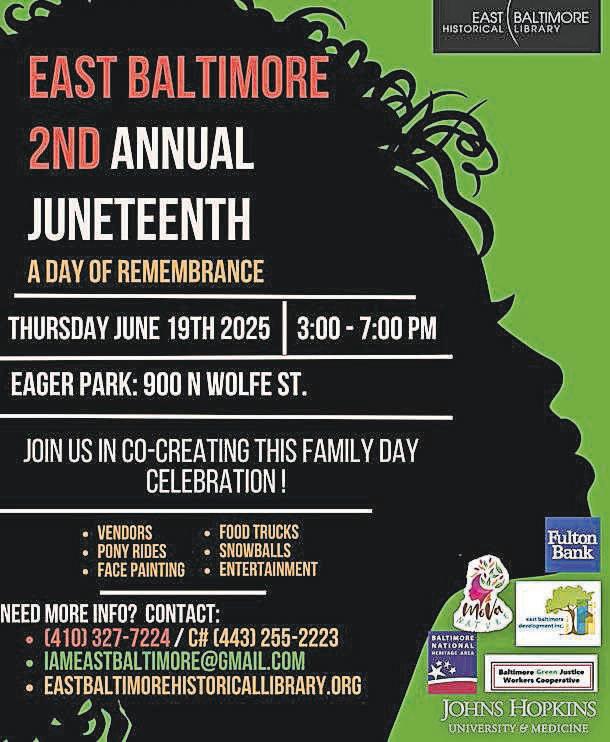



spill was caused by overfilling of two diesel tanks during a routine fuel delivery
By Megan Sayles AFRO Staff Writer msayles@afro.com
Cleanup efforts are ongoing in Baltimore’s Harbor East after officials confirmed that the June 4 diesel spill released 5,000 gallons of fuel— more than double the amount originally reported. The leak occurred during a routine fuel delivery to Johns Hopkins Hospital and was attributed to the overfilling of two tanks.
The spill is still contained in the marina near the South Central Avenue Bridge. Officials say there has been no impact to drinking water or air quality. Still, some Baltimoreans are concerned about the potential harm to aquatic life.
Donte Gunter, a 22-year-old Harbor East resident, noted that the site of the spill is home to “Turtle Island.”
“It’s been like a year now since I started walking by and noticing that there were turtles in the harbor,” said Gunter. “I’ve just been visiting them, it’s a really good sight to see. There’s hundreds of turtles over there.”
Gunter was not initially aware of the spill. But, while walking near the water on June 4, he noticed its unusual red tint— a result of the dye used in the diesel fuel.
“I didn’t think it would become this

thought about the turtles,” said Gunter. “But, I didn’t know what it was, so I wasn’t extremely worried. However, now I’m getting increasingly worried.”
Johns Hopkins Hospital initially reported a 200-gallon diesel spill at 11 a.m. on June 4. A couple hours later, the Baltimore City Fire Department deployed to respond to a 911 call for a fuel spill in a Harbor East marina.
By 6:48 p.m., Johns Hopkins Hospital amended its report to indicate a 2,000-gallon uncontained spill. On June 6, that number was increased to approximately 5,000 gallons.
Officials have confirmed that there will be an investigation into the spill by the Maryland Department of Environment’s Oil Control Program to determine whether the hospital will face any fines. Gunter believes the institution should face consequences if found negligent.

By Tashi McQueen AFRO Staff Writer tmcqueen@afro.com
Baltimore City Council is in the final stages of approving the fiscal year 2026 budget, barring any surprises from the federal government.
The hearings began on May 28 and ended on June 4.
big of a problem. I had no idea what was going on with the water. Once I saw it, I did take note of it, and I
“I believe major businesses should be held accountable for keeping the environment healthy and in its normal state— how it was before they came here,” said Gunter. “I believe they have a duty to do that because they are such large corporations, and they can severely impact the environment if they aren’t responsible.”
During these sessions lawmakers heard from a range of city agencies about their top budget priorities that need funding. The council has until June 26 to make amendments, and pass the budget so it can go into effect on July 1.
Main concerns addressed throughout the hearings have been reducing the costly impact of vacant jobs and rising overtime pay in city agencies.
“According to our analysis
of the data provided by the administration, overtime expenditures from the general fund at [Recreation and Parks] increased from $2.3 million in 2023 to $2.8 in 2024,” said Council President Zeke Cohen (D) at City Hall on June 2.
Reginald Moore, an executive director of Baltimore City Recreation and Parks (BCRP), responded saying their overtime is consistent with events that happen throughout the city.
“In August of last year, there was a severe wind storm; we had over 400 service requisitions,” said Moore. “That event, alone, approximately cost us about a half a million dollars in operation between overtime and
By Congressman Kweisi Mfume (D-Md.-07)
On the 18th anniversary of his passing, several hundred Marylanders gathered at the Pip Moyer Recreation Center in Annapolis, Md. to witness the dedication of a memorial honoring the late, great, trailblazing statesman Parren James Mitchell. The tribute, etched in stone, features both photos and information on the late Congressman who broke barriers and paved the way for many.
Born on April 29, 1922, Parren Mitchell, my political mentor and predecessor in representing Maryland’s 7th Congressional District on Capitol Hill, was a leader in every aspect of the word. The native son of Baltimore who displayed courage and leadership died May 28, 2007, after decades of opening the doors that many of us now walk through.
Mitchell had the heart of a lion—a bravery that was forged in the crucible of the Second World War. He was serving in the U.S. Army’s 92nd Infantry Division when he was wounded in battle in Italy. Parren returned home with a Purple Heart medal of valor and a steadfast resolve to ensure that the sacrifices of his brothers in arms would not be in vain.
After the war, Parren journeyed back to Baltimore and enrolled at Morgan State University. There, he became an outspoken activist protesting the segregation of Baltimore’s theaters and marching in support of equal pay and equal facilities for Black teachers.
After graduating from Morgan, Parren sued the then-segregated University of Maryland and became the first African-American graduate student in the school’s history.
After returning to Morgan as a professor and serving in various local organizations for two decades, Parren turned his sights to politics. In 1970, he defeated eight-term Congressman Samuel Friedel in the 7th District Democratic primary by only 38 votes.

Continued from B1
Samendra Sherchan, professor of environmental health science at Morgan State University, said the diesel spill could have serious short- and long-term effects on the environment if it’s not cleaned up thoroughly.
In the immediate future, animals that were directly exposed to the contaminated water could become sick or die. Residents could also experience nausea or headaches due to the strong smell produced by the oil. In the years ahead, some of the diesel could permeate the sediment. If heavy rain disturbs it later, it could pose risks to the food chain.
“Continuous sediment testing and water quality monitoring should be conducted over the next several weeks to ensure best management practices,” said Sherchan. “Clear communication with the public is paramount to informing their strategies for successful cleanup efforts.”
Officials from the U.S. Coast Guard and BCFD are collaborating with several environmental contracting companies to clean up the spill. They are using oil-absorbent materials and skimmers that feed into vacuum trucks.
As of June 5, 18,000 gallons of oil-water mixture had been pulled from the harbor. Baltimore Mayor Brandon M. Scott thanked responders for their efforts to contain and remove the spill during a press conference on June 5.
“Once again, I want to underscore our gratitude to the women and men who have worked tirelessly to address this,” said Scott. “We committed to doing this right and committed to doing it together, and that means ensuring the safety of our residents and wildlife above all else.”
Continued from B1
equipment that was used. We will continue to look at overtime, but we do understand that some of this [overtime] is going to happen because of events and activities that our agency still has to operate.”
Top budget priorities for BCRP include $107,000 in additional dollars for security at the various pool locations, $436,000 for additional tree maintenance and $243,000 for playground maintenance.
Cohen addressed concerns about vacant positions in the Baltimore Police Department (BPD), which he acknowledges is severely understaffed.
“We have 492 sworn vacancies right now,” said Baltimore City Police Commissioner Richard Worley at the June 3 hearing. “The majority of those have probably been vacant for about 18 months because we were on the downward trend.”
Despite these trends and a nationwide shortage of police officers, Worley spoke confidently of the agency’s ability to fill vacancies in the coming three to five years.
“By the end of the year, I think we’re going to have 100 more cops than we have now,” he said.
Worley credited several efforts for their expected increase, such as the mayor and city officials providing officers a good contract in 2024 that would keep some members of the police force from retiring and BPD upgrading their recruitment campaigns.
The police department’s FY 2026 priorities include $225 million for police patrol, $110 million for the Criminal Investigation Division and $32 million for recruitment.
a time when I felt hopeless over the plight of Black people. As a young, trash-talking street leader, I tried to bully him—but, surprisingly, he appeared to embrace my challenge.
Mr. Mitchell then became the first African American to represent Maryland in the United States Congress, where he would go on to serve for 16 years.
In Congress, he was a founding member of the Congressional Black Caucus, a champion of minority businesses, and a fierce advocate for working people everywhere.
I first met Parren on a street corner in Baltimore when I was 19 years old—at
Little did I know, this chance meeting would alter my life.
Parren made me reflect on my dueling identities, one that was streetwise and one that was grounded in the values of which I was raised. He also opened my eyes to the fact that I had no grounds to talk about the problems our neighborhoods faced until I was ready to become part of the solution, and not be part of the problem itself.


Councilwoman Phylicia Porter (D-District 10) said one of the major issues that she has seen across the different budget hearings is the likelihood of federal funding being removed from city resources and how that could impact residents.
Porter said having a conversation about what that potential deficit could look like is going to be paramount.
She also pointed out how her fellow councilmembers have used these hearings to ensure agency efficiency.
“I’m grateful that this council delved into those issues to see how we can get better, because in the fiscal year 2027 budget we are going to have to work more efficiently with the limited funds that we will have next year,” said Porter, citing the importance of preparing for the next three years of potentially reduced financial support from the federal government.
With these thoughts racing inside me, I reached back out to Parren and ultimately became a volunteer in his campaign headquarters.
Looking back, what should have been a petty clash turned out to be my first interaction with my first political mentor, and someone I came to regard as a second father. With this new memorial in Annapolis, I am glad that the people of Maryland will have the special opportunity to reflect on the meaning of his life and deeds of service for decades to come.
The opinions expressed in this commentary are those of the writer and not necessarily those of the AFRO.
Councilman Paris Gray (D-District 8) said a top priority for him this budget season is hearing what BPD and other agencies are doing about ensuring Black men, who are over incarcerated in Maryland, are given the tools to choose a better path and not just seen as criminals.
“One of the things I want to make sure that we are doing is making sure that our Baltimore City police and our Rec and Parks are still going to be there this summer for our kids,” said Gray in spite of federal funding cuts. “If we want to make sure that we are going to keep these numbers down and keep our kids safe we have to find things for them to do.”
As of June 2, homicides in Baltimore City are down by 23.6 percent and non-fatal shootings down by 23.4 percent compared to this time last year, according to Baltimore City Mayor Brandon M. Scott (D).


BGE uses drones to identify damage or wear on power line equipment. Drones inspect equipment quickly and thoroughly— so we can monitor the condition of the distribution system and catch problems before they interrupt service. Just another way good energy connects us all. Learn more at bgenow.com/Good-Energy/




Janet Currie President,






















By Ali Halloum AFRO Intern
Washington, D.C. Mayor Muriel Bowser and the Mayor’s Office of Caribbean Community Affairs (MOCCA) marked the beginning of the city’s Caribbean Heritage Month celebrations with the second annual Caribbean flag raising ceremony on June 1 at the John A. Wilson Building in Northwest.
Since its proclamation in 2006 by the Bush administration, Caribbean Heritage Month has been held every June since, promoting the culture and contributions of Caribbean Americans,
80,000 of whom call Washington D.C. home, with roots running generations deep in Wards 4, 5 and 8.
Executive Director of the MOCCA Natalee Snider said in a May 30 press release that throughout June, the city is reaffirming its “commitment to ensuring that every Caribbean voice
is heard, valued, and supported in Washington, D.C.”
“Caribbean Heritage Month is a time to reflect on the resilience, creativity, and deep cultural pride that Caribbean people bring to the District and beyond,” Snider said. “Our communities
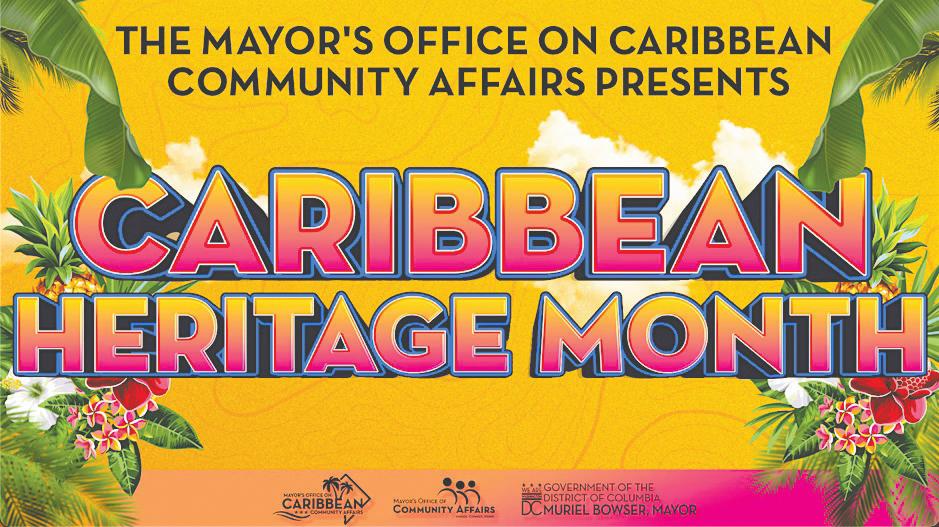
By Tashi McQueen AFRO Staff Writer tmcqueen@afro.com
By Tavon N. Thomasson AFRO Intern
Beginning Aug. 25, 2025, D.C. Public Schools will enforce a districtwide ban on personal cell phones and electronic devices including “smart watches or Bluetooth headphones, laptops and tablets,” to limit distractions and create a better learning environment for students.
Under the new policy, all mobile devices must remain off and stored throughout the school day.
Individual schools will have the flexibility to determine how to store students’ cellular devices. Whether that means requiring them to remain in backpacks, lockers, or placing them in a designated basket.
“Piloting a phone-free program in our middle schools demonstrated that storing students’ personal devices throughout the school day enriches academic, social and emotional learning,” said DCPS Chancellor, Dr. Lewis D. Ferebee. In its two year trial
across middle schools and several high schools, the administration found the phone-free model to work smoothly with existing storage options.
“There wasn’t a budget for the schools that have been piloting this or [have] been utilizing this for some time; they’ve been using their school resources different ways, and we don’t anticipate additional hefty expenses for schools,” said Dr. Ferebee.
DCPS has noted that while smartphones can be educational assets, allowing them to be accessible to students throughout the day can cause issues. According to DCPS, studies have found that excessive levels of smartphone use has “fueled youth mental health concerns, negatively affected concentration and worsened bullying to include cyber interactions.”
“Oftentimes, we can see that students are communicating throughout the day about plan altercations, or students sending messages to other students that are
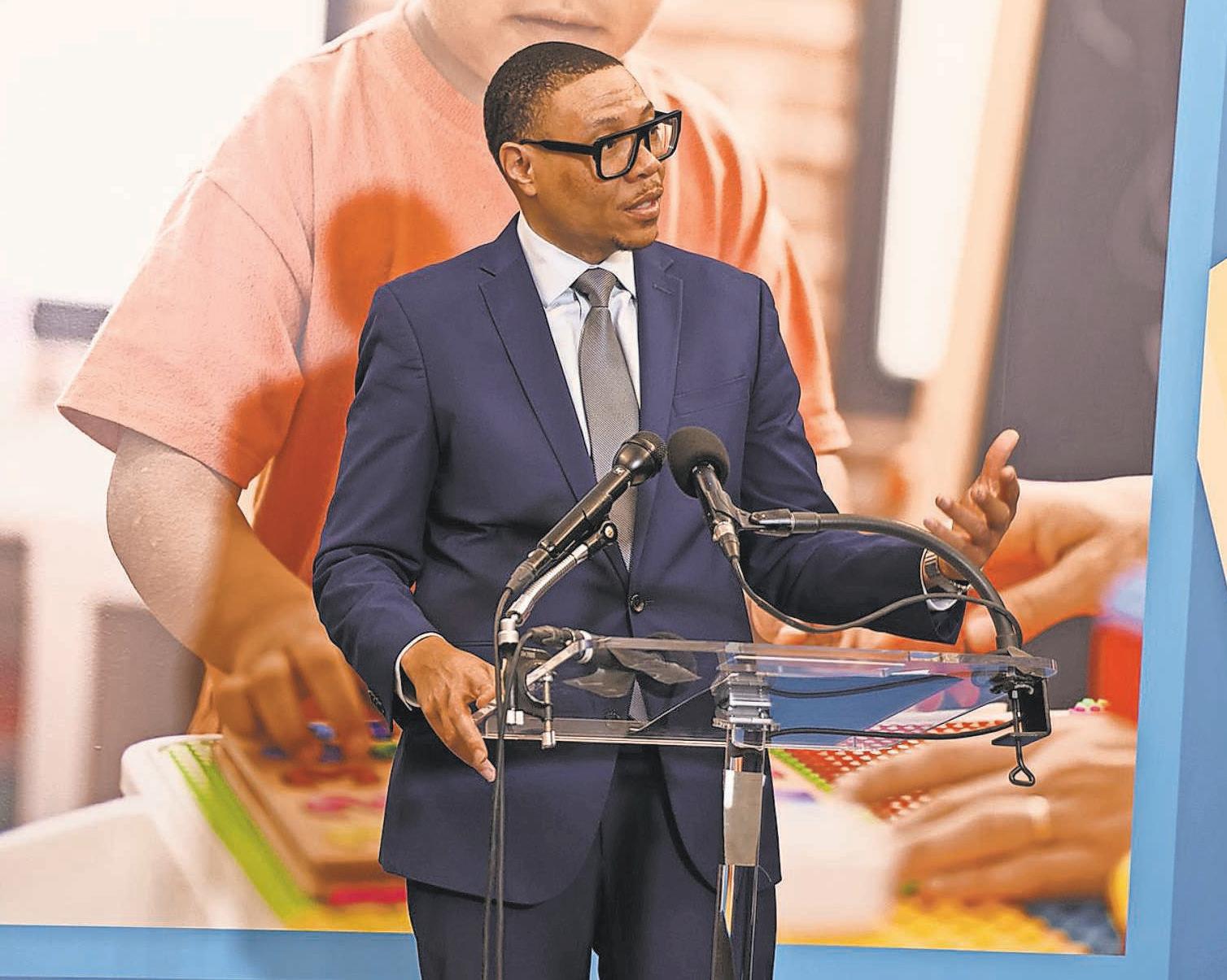
This budget season, D.C. Council members are considering how Mayor Muriel Bowser’s (D) proposal to cut funding in order to balance her $2.6 billion spending package for fiscal year 2026 will affect the city. Bowser’s proposed budget includes $246 million in reductions to city programs and services. It also features the removal of funding for a new jail to be replaced by a public-private partnership to finance and build the facility and lease it back to the District. These cuts were made in large part to help offset an expected loss of $1 billion in revenue over the next four years due to mass federal layoffs, reduced income and a decrease in consumer spending.
“As the planning process has wrapped up, it’s clear that to be able to build a jail of the size and quality needed it probably involves $1.4 billion,” said Paul Kihn, deputy mayor for education, on May 27 at the unveiling of the mayor’s proposed budget. Kihn said that’s just not feasible and would take too much time to complete.
Chairman Phil Mendelson (D) responded to that argument by saying “it’s easy to throw out a figure that isn’t necessarily a solid vetted carefully developed figure.”

By DaQuan Lawrence Special to the AFRO dlawrence@afro.com
According to a recent report issued by the Office of the District of Columbia Auditor (ODCA), the nation’s capital is overdue for a new jail. The extensive report, titled “Urgent Need for New D.C. Jail,” outlines deteriorating conditions at the current jail facility. Authors of the report say the issues range from in-custody deaths to staffing issues, health and safety concerns, as well as mental health and substance abuse challenges.
While the Department of Corrections (DOC) is located in Northwest D.C., the city’s Central Detention Facility (CDF) is located in the Southeastern quadrant of the city at 1901 D Street. Overall, the report provides detailed information about precarious conditions, failing infrastructure and a rate of deaths by overdose 10 times higher than the national average.
Based on the findings by ODCA, the current jail is facing issues of overcrowding as many people admitted to the facility remain in jail for over a year. In FY 2024, 7,508 people admitted to DOC were released after staying no more than two weeks according to the DOC. Of this group, 53 percent were women, while 42 percent of those released were men.
The recent report follows a 2019 report entitled, “Poor Conditions Persist at Aging D.C. Jail; New Facility Needed to Mitigate Risks,” where the office of D.C. Auditor Kathy Patterson identified that the D.C. jail had a history of severe overcrowding, unsafe facilities and unsanitary conditions.
Native Washingtonian, activist and former Advisory Neighborhood Commission (ANC) Commissioner, Joel Castón, believes that the CDF is a bleak building that needs to be changed.
“If you put someone in harsh, dark and gloomy environments, then that’s what you produce. That’s what’s going on inside of the Central Detention Facility,” Castón told the AFRO. “Inmates are detained all the time, sometimes spending more than 12 hours in their cells, so many things need to be changed.”
In 2021, Castón was elected to serve as the commissioner for ANC district 7F07 while imprisoned in the D.C. jail for murder. He became the first person to hold the seat and the first incarcerated person elected to public office in Washington, D.C., after serving 27 years at 16 different facilities before receiving parole.
“The old way of thinking was, ‘if we treat people harsh, they won’t want to come back,’ but no one wants to come to jail, so that premise is false. We need penal institutions that maintain human respect and dignity…”
“A new facility could be more humane [and] a place that’s suitable for the staff that work there and the people who must be detained while having their legal proceedings rectified,” Caston explained.
In 2018, Castón became a founding mentor of the Young Men Emerging (YME), a treatment unit for young adults at the D.C. jail, according to the Department of Corrections. The program currently provides counseling and mentoring opportunities to help young people gain developmental skills needed to succeed. The program was highlighted by the Justice Policy Institute for its impact.
“I’m hoping that a new facility design can provide natural sunlight because constant darkness impacts human psychology,” he said.
During his term, served between 2021-2023, Castón called for systemic changes to improve the treatment of incarcerated individuals, the quality of their facilities and reductions to the
informed of bullying,” said Dr. Ferebee. “Those are two great examples that I think we can eliminate with this policy across our schools.”
Although cell phones will be prohibited, “DCPS will continue to utilize school-issued devices to integrate technology into learning experiences, including engaging students in lessons related to digital literacy and citizenship.”
Furthermore, administrators acknowledge that some students may require limited phone access due to medical needs. Those with Individualized Education Programs or 504
Mendelson said he’s concerned and disappointed with the proposal.
“We desperately need a new jail for a couple reasons,” said Mendelson. “One, is that the jail buildings are old. They are not as good as they should be to house human beings. In addition the architecture with regard to jails has changed so much in the last few decades. The modern jail would be much less expensive to operate.”
Another major concern is the change in Medicaid eligibility requirements in the budget. Councilmembers heard several public testimonies on June 5 at the Committee of Health’s public testimony only hearing.
“A 2023 study of a half a million Medicare beneficiaries found that the group with the regular primary care visits and high continuity of care had $3,400 more in savings per person, 40 percent less frequent emergency visits and 53 percent less
negative impact of incarceration on families.
“As ANC Commissioner, I represented the individuals inside of D.C. jail, as well as women that were inside of the Correction Treatment Facility. I focused on listening to constituents that were inside and outside the facilities,” Castón said.
The Correctional Treatment Facility was constructed by DOC and activated in May 1992 as a specialized medium security institution. The eight-story structure is next to the CDF on 19th and D Streets, SE, Washington D.C.
The Central Detention Facility opened in 1976. The 2019 site observations by ODCA and the Department of Health (DOH) inspection reports of the D.C. jail cited DOH environmental violations, including water penetration through the walls from a leaking roof, mold growth on walls and damaged shower stalls.
The findings of the recent report show that the need for a new jail or renovations to the current facilities may be necessary.
The report found the following:
DOC facilities constantly need repairs to multiple systems in both common areas and residents’ cells, including broken and malfunctioning cell doors, locks, keys, gates, plumbing and wiring
• DOC fails to maintain consistent healthy temperatures in either facility, and fails to maintain consistently clean, hygienic and safe conditions and does not adequately control parasites, vermin and mold DOC provides minimal and inconsistent data to the public, oversight bodies and family members regarding the circumstances of deaths in custody
• There were 400 documented incidents of DOC staff use of force during the audit period, frequently involving the use of pepper spray on residents
• Even with growing substance use treatment offerings at the jail, DOC is not addressing all substance use issues among residents who need care, with insufficient residential treatment beds, vacant peer navigator positions and the need to administer Narcan at least 148 times during the audit period.
Last year, Castón was nominated to serve on the 17-member D.C. Sentencing Commission. In his recent role, he continually calls attention to the importance of addressing the root causes of incarceration, reforming the penal system and providing opportunities for rehabilitation.
“That jail is old, but instead of new jails and prisons, we need alternatives to incarceration because what currently exists is not sufficient for human beings,” Castón said. “We need something that’s in
line with recent developments, such as in Norway, which is renowned for having a facility that provides a more normalized experience for incarcerated people.”
Castón mentioned that although laws and policies are in place, bias and prejudice also exists, and that he believes holding dehumanized individuals in degrading environments does nothing to address the public health and public safety crisis.
“The old way of thinking was, ‘if we treat people harsh, they won’t want to come back,’ but no one wants to come to jail, so that premise is false,” Castón said. “We need penal institutions that maintain human respect and dignity, so while people are inside, their sentence is an opportunity that prepares them and prevents recidivism.”

Unsplash/ dev Asangbam
A recent report from the Office of the District of Columbia Auditor paints a dire picture of the current state of the D.C. jail located in Southeastern section of the city. The report states that mold, broken systems and overcrowding plague the jail, with use-of-force incidents and overdose deaths on the rise.
“Piloting a phone-free program in our middle schools demonstrated that storing students’ personal devices throughout the school day enriches academic, social and emotional learning.”
plans who depend on assistive technology can request supervised use of their devices.
During field trips, teachers may authorize phone use if it directly supports safety and educational goals. In a school emergency, DCPS will communicate with parents and guardians through approved channels. Families are asked not to call or text students during a crisis.
frequent hospitalizations compared to the group receiving irregular and non-continuous care,” said George Jones, CEO of Bread for the City, a hunger relief organization based in Washington, D.C. “We cannot continue our relentless focus on providing high-quality regular and continuous care to the people most vulnerable to illness without stable and secure funding.”
The budget phases out D.C.’s Health Care Alliance coverage for persons over 21, enacts a moratorium on new enrollees, denies around 25,000 Medicaid recipients who exceed income thresholds access to robust Medicaid services and moves them into a “basic health plan” in the public Marketplace instead.
According to 2021 data from the American Community Survey, approximately 69 percent of employed Medicaid enrollees aged 19 to 64 in D.C. identify as African American. Given that Black residents make up around 41 percent of the city’s population, it shows that Black Washingtonians have a significant reliance on Medicaid.
Jones urged that if the basic health plan moves forward, authorities should ensure it includes the
It’s important to note that “DCPS and its staff do not assume responsibility for students’ cell phones or electronic communication devices if they are brought to school grounds,” the policy states.
For more information on the new cell phone and electronic device policy, visit the DCPS site at https://dcps.dc.gov/cellphones
same robust benefits as Medicaid, including services like dental and vision, retroactive eligibility, continuous enrollment and zero premiums or cost sharing.
“If that takes additional District investment we believe it’s a price worth paying to protect our community’s health,” he said.
The council began their budget oversight hearings on May 29. They will end on June 17. Committee mark-ups are set for June 23 and will end on June 25.
This budget season was delayed by two months due to sudden changes to the city’s fiscal year 2025 budget funding by the federal government. Bowser did not release her proposed budget until May 27, when it was originally expected to be presented on April 2.
Instead of taking their summer recess on July 15, as has been the tradition for 50 years, leaders will now have to take the break in August.
Mendelson said the council will vote on the budget on July 14 and again on July 28. The Home Rule Act permits the council only 70 days maximum to work on the budget and finalize it after the mayor provides them her proposal.
Continued from B4
continue to shape the narrative of what it means to be American — through the arts, business, public service, and more.” In the press release, the city says it is “partnering with community based organizations,” hosting four events throughout the month to “showcase the rich Caribbean community across D.C.”
On June 15 at 3 p.m., the city will be hosting a Father’s Day Bazaar at the Organization for American States building on 17th Street NW, featuring vendors, live music and children’s activities.
The same day at 1 p.m., the second annual “Taste of Caribbean Dance” event will take place at the YMCA Antony Bowen building on W Street NW, featuring dance workshops and a Caribbean market.
Finally, on June 27 at 5:30 p.m. the MOCCA will celebrate the office’s three year anniversary in conjunction with the Advisory Committee on Caribbean Community Affairs, who celebrates the two-year anniversary of its commissioner’s service, they will jointly host We De Ya, a “vibrant celebration of Caribbean Heritage Month” at the Eaton Hotel on K Street.




SUPERIOR COURT OF THE DISTRICT OF COLUMBIA PROBATE DIVISION ADMINISTRATION NO. 2025ADM000521
MYRTLE V. MILLER Name of Decedent
THEODORE R. PINDELL PRO SE 4000 E ST. SE WASHINGTON, DC 20020
Notice of Appointment, Notice to Creditors and Notice to Unknown Heirs
THEODORE R. PINDELL, whose address is, PO BOX 602 BELTSVILLE MD 20704 was appointed Personal
Representative of the estate of MYRTLE V. MILLER who died on JANUARY 08, 2025 without a Will and will serve without Court supervision. All unknown heirs and heirs whose whereabouts are unknown shall enter their appearance In this proceeding. Objections to such, appointment shall be filed With the Register of Wills, D.C., Building A, 515 5th Street, N.W., 3rd Floor, Washington, D.C. 20001, on or before DECEMBER 06, 2025. Claims against the decedent shall be presented to the undersigned with a copy to the Register of Wills or filed with the Register of Wills with a copy to the undersigned, on or before DECEMBER 06, 2025 or be forever barred. Persons believed to be heirs or legatees of the decedent who do not receive a copy of this notice by mail within 25 days of its publication shall so inform the Register of Wills, including name, address and relationship. Date of first publication: JUNE 06, 2025 Name of newspaper and/or periodical: Washington Law Reporter AFRO American Newspapers
THEODORE R. PINDELL Personal Representative
TRUE TEST COPY REGISTER OF WILLS 06/06, 06/13, 06/20/25
COURT OF THE DISTRICT OF COLUMBIA PROBATE DIVISION ADMINISTRATION NO.
2025ADM000513
DIANNE LOWERY MORGAN Name of Decedent Notice of Appointment, Notice to Creditors and Notice to Unknown Heirs
DEBORAH WILLIAMS & CHALMERS LOWERY, II , whose addresses are, 6101 TEAM PLACE, WOODBRIDGE, VA 22193 AND 3709 IDOLSTONE LN., BOWIE, MD were appointed Personal Representative of the estate of DIANNE LOWERY MORGAN who died on DECEMBER 21, 2024 without a Will and will serve without Court supervision. All unknown heirs and heirs whose whereabouts are unknown shall enter their appearance In this proceeding. Objections to such, appointment shall be filed With the Register of Wills, D.C., Building A, 515 5th Street, N.W., 3rd Floor, Washington, D.C. 20001, on or before DECEMBER 06, 2025. Claims against the decedent shall be presented to the undersigned with a copy to the Register of Wills or filed with the Register of Wills with a copy to the undersigned, on or before DECEMBER 06, 2025 or be forever barred. Persons believed to be heirs or legatees of the decedent who do not receive a copy of this notice by mail within 25 days of its publication shall so inform the Register of Wills, including name, address and relationship. Date of first publication: JUNE 06, 2025 Name of newspaper and/or periodical: Washington Law Reporter AFRO American Newspapers
DEBORAH WILLIAMS CHALMERS LOWERY II Personal Representative TRUE TEST COPY REGISTER OF WILLS 06/06, 06/13, 06/20/25
SUPERIOR COURT OF THE DISTRICT OF COLUMBIA PROBATE DIVISION ADMINISTRATION NO. 2025ADM000554
YOLANDA INEZ JOSEY-BAKER Name of Decedent NATALIE S. WALKER, ESQ. 1101 CONNECTICUT AVE., NW, SUITE 402 WASHINGTON, DC 20026 Notice of Appointment, Notice to Creditors and Notice to Unknown Heirs
BELINDA JOSEY AND LAWRENCE A. GUNTER, JR , whose addresses are, 4127 18TH ST., NE, WASH., DC 20018; 660 OGLETHORPE ST., NE, WASH., DC 20011 were appointed Personal Representative of the estate of YOLANDA INEZ JOSEY-BAKER who died on NOVEMBER 17, 2022 without a Will and will serve without Court supervision. All
SUPERIOR COURT OF THE DISTRICT OF COLUMBIA PROBATE DIVISION 2025FEP57 DECEMBER 09, 2023 Date of Death CAROLYN CHESLEY Name of Decedent
NOTICE OF APPOINTMENT OF FOREIGN PERSONAL REPRESENTATIVE AND NOTICE TO CREDITORS
WILLIAM E. CHESLEY whose address is 5803 FEDERAL COURT UPPER MARLBORO MD 20772 was appointed representative of the estate of CAROLYN CHESLEY deceased, by the ORPHANS COURT for PRINCE GEORGE’S County, State of MARYLAND, on SEPTEMBER 26, 2024. Service of process may be made upon JOHN CHESLEY 2608 32ND ST SE, WASHINGTON, DC 20020 whose designation as District of Columbia agent has been filed with the Register of Wills, D.C. The decedent owned the following District of Columbia real property: Claims against the decedent may be presented to the undersigned and filed with the Register of Wills for the District of Columbia, Building A, 515 5th Street, N.W., 3rd Floor, Washington, D.C. 20001 within 6 months from the date of first publication of this notice.
Date of first publication: JUNE 13, 2025 Name of newspaper, and/or periodical: Daily Washington Law Reporter AFRO-American
WILLIAM E. CHESLEY Personal Reperesenative TRUE TEST COPY REGISTER OF WILLS 06/13, 06/20, 06/27/25
SUPERIOR COURT OF THE DISTRICT OF COLUMBIA PROBATE DIVISION
ADMINISTRATION NO. 2025ADM000483
WILBERT H. GRANDY, SR. AKA WILBERT GRANDY AKA
WILBERT H. GRANDY Name of Decedent Notice of Appointment, Notice to Creditors and Notice to Unknown Heirs TIMOTHY QUINTIN GRANDY, whose address is, 115 WEBSTER STREET, NW; WASHINGTON, DC 20011 was appointed Personal Representative of the estate of WILBERT H. GRANDY SR. AKA WILBERT GRANDY AKA WILBERT H. GRANDY who died on AUGUST 15, 2024 with a Will and will serve without Court supervision. All unknown heirs and heirs whose whereabouts are unknown shall enter their appearance In this proceeding. Objections to such, appointment shall be filed With the Register of Wills, D.C., Building A, 515 5th Street, N.W., 3rd Floor, Washington, D.C. 20001, on or before NOVEMBER 30, 2025. Claims against the decedent shall be presented to the undersigned with a copy to the Register of Wills or filed with the Register of Wills with a copy to the undersigned, on or before NOVEMBER 30, 2025 or be forever barred. Persons believed to be heirs or legatees of the decedent who do not receive a copy of this notice by mail within 25 days of its publication shall so inform the Register of Wills, including name, address and relationship. Date of first publication: MAY 30, 2025 Name of newspaper and/or periodical: Washington Law Reporter AFRO American Newspapers TIMOTHY QUINTIN GRANDY Personal Representative TRUE TEST COPY REGISTER OF WILLS 05/30, 06/06, 06/13/25
SUPERIOR COURT OF THE DISTRICT OF COLUMBIA
PROBATE DIVISION ADMINISTRATION NO. 2025ADM000531 DREW AVERY CARR Name of Decedent Notice of Appointment, Notice to Creditors and Notice to Unknown Heirs
TIA BROWN, TYLER BROWN-CARR, whose address-
HORACE HARDING EXPY APT 6D
es are, 97-11
CORONA, NEW YORK, 11368 were appointed Personal Representative of the estate of DREW AVERY CARR who died on APRIL 18, 2024 without a Will and will serve without Court supervision. All unknown heirs and heirs whose whereabouts are unknown shall enter their appearance In this proceeding. Objections to such, appointment shall be filed With the Register of Wills, D.C., Building A, 515 5th Street, N.W., 3rd Floor, Washington, D.C. 20001, on or before DECEMBER 06, 2025. Claims against the decedent shall be presented to the undersigned with a copy to the Register of Wills or filed with the Register of Wills with a copy to the undersigned, on or before DECEMBER 06, 2025 or be forever barred. Persons believed to be heirs or legatees of the decedent who do not receive a copy of this notice by mail within 25 days of its publication shall so inform the Register of Wills, including name, address and relationship. Date of first publication: JUNE 06, 2025 Name of newspaper and/or periodical: Washington Law Reporter AFRO American Newspapers TIA BROWN TYLER BROWN-CARR Personal Representative
SUPERIOR COURT OF THE DISTRICT OF COLUMBIA PROBATE DIVISION ADMINISTRATION NO.
2025ADM000581 MILTON LEATH Name of Decedent Notice of Appointment, Notice to Creditors and Notice to Unknown Heirs
SHARON CORK-LEATH, whose address is, 4411 SHERIFF ROAD, NE WASHINGTON, DC 20019 was appointed Personal Representative of the estate of MILTON LEATH who died on JANUARY 30, 2025 without a Will and will serve without Court supervision. All unknown heirs and heirs whose whereabouts are unknown shall enter their appearance In this proceeding. Objections to such, appointment shall be filed With the Register of Wills, D.C., Building A, 515 5th Street, N.W., 3rd Floor, Washington, D.C. 20001, on or before DECEMBER 13, 2025. Claims against the decedent shall be presented to the undersigned with a copy to the Register of Wills or filed with the Register of Wills with a copy to the undersigned, on or before DECEMBER 13, 2025 or be forever barred. Persons believed to be heirs or legatees of the decedent who do not receive a copy of this notice by mail within 25 days of its publication shall so inform the Register of Wills, including name, address and relationship. Date of first publication: JUNE 13, 2025 Name of newspaper and/or periodical: Washington Law Reporter AFRO American Newspapers
SHARON CORK-LEATH Personal Representative
TRUE TEST COPY REGISTER
SUPERIOR COURT OF THE DISTRICT OF COLUMBIA PROBATE DIVISION ADMINISTRATION NO. 2025ADM000554 YOLANDA INEZ JOSEY-BAKER Name of Decedent NATALIE S. WALKER, ESQ. 1101 CONNECTICUT AVE., NW, SUITE 402 W Notice of Appointment, Notice to Creditors and Notice to Unknown Heirs
PAUL HEALD AND JUSTIN TILTON, whose addresses are, 1445 N. STREET NW, #302 WASHINGTON DC 20005/ SRBSKO 4, KNEZMOST, 29402, CZECH REPUBLIC were appointed Personal Representative of the estate of JAMES FARMER who died on AUGUST 14, 2024 with a Will and will serve without Court supervision. All unknown heirs and heirs whose whereabouts are unknown shall enter their appearance In this proceeding. Objections to such, appointment shall be filed With the Register of Wills, D.C., Building A, 515 5th Street, N.W., 3rd Floor, Washington, D.C. 20001, on or before DECEMBER 06, 2025. Claims against the decedent shall be presented to the undersigned with a copy to the Register of Wills or filed with the Register of Wills with a copy to the undersigned, on or before DECEMBER 06, 2025 or be forever barred. Persons believed to be heirs or legatees of the decedent who do not receive a copy of this notice by mail within 25 days of its publication shall so inform the Register of Wills, including name, address and relationship. Date of first publication: JUNE 06, 2025 Name of newspaper and/or periodical: Washington Law Reporter AFRO American Newspapers PAUL HEALD JUSTIN TILTON Personal Representative TRUE TEST COPY REGISTER OF WILLS 06/06, 06/13, 06/20/25

SUPERIOR COURT OF THE DISTRICT OF COLUMBIA PROBATE DIVISION ADMINISTRATION NO. 2025ADM000338 DONNA M. LEWIS AKA DONNA MARIE LEWIS Name of Decedent Notice of Appointment, Notice to Creditors and Notice to Unknown Heirs LEONNA D. BAYNE,
SUPERIOR COURT OF THE DISTRICT OF COLUMBIA PROBATE DIVISION ADMINISTRATION NO. 2025ADM000485 RENEE E. FLETCHER AKA RENEE FLETCHER Name of Decedent Notice of Appointment, Notice to Creditors and Notice to Unknown Heirs PIERRE FLETCHER, whose address is, 7916 CRYDEN WAY FORESTVILLE, MD 20747 was appointed Personal Representative of the estate of RENEE E. FLETCHER AKA RENEE FLETCHER who died on JANUARY 03, 2025 without a Will and will serve without Court supervision. All unknown heirs and heirs whose whereabouts are unknown shall enter their appearance In this proceeding. Objections to such, appointment shall be filed With the Register of Wills, D.C., Building A, 515 5th Street, N.W., 3rd Floor, Washington, D.C. 20001, on or before NOVEMBER 30, 2025. Claims against the decedent shall be presented to the undersigned with a copy to the Register of Wills or filed with the Register of Wills with a copy to the un
dersigned, on or before NOVEMBER 30, 2025 or be forever
to be
Persons
or legatees of
decedent who
of this notice by mail within 25 days of its publication shall so inform the Register of Wills, including name, address and relationship. Date of first publication: MAY 30, 2025 Name of newspaper and/or periodical: Washington Law Reporter AFRO American Newspapers PIERRE FLETCHER Personal Representative


Payment Policy for legal notice advertisements.
Effective immediately, The Afro American Newspapers will require prepayment for publication of all legal notices Payment will be accepted in the form of checks, credit card or money order. Any returned checks will be subject to a $25.00 processing fee and may result in the suspension of any future advertising at our discretion.
ANNE ARUNDEL COUNTY, MARYLAND
Annapolis, Maryland
ANNOUNCEMENT REQUEST FOR BIDS
B-2043-25
The Housing Authority of Baltimore City (“HABC”) will issue a Request for Proposals (“RFP”) for interested and qualified firms to submit proposals to provide routine and emergency maintenance and support for its energy management and control systems (“EMCS”) at various HABC properties. PROPOSALS WILL BE DUE no later than 2:00 p.m. Eastern Time on Friday, July 11, 2025
A non-mandatory pre-proposal conference will be held on Wednesday, June 25, 2025 at 10:00 a.m., which will be scheduled as a virtual meeting.
The RFP and all supporting documents may be examined and obtained on or after Monday, June 16, 2025, at the following location: Housing Authority of Baltimore City Division of Fiscal Operations, Procurement Department Attention: Mary Kate Gagliardi, Senior Buyer Tel: (410) 396-3105 mary.gagliardi@habc.org
Questions regarding the RFP should be directed in writing to the address and individual indicated above and must include the reference: HABC RFP Number B-2043-25.
On or after June 9, 2025, Plans and Specifications may be obtained from the Anne Arundel County Web Page at the following address: https://www. aacounty.org/departments/central-services/purchasing/P.O.R.T./bids/index.html . Bids will be received until time/date shown below, please submit your bid electronically via the PORT. Bids received after the date and time set will be rejected.
Due by 1:30 p.m. Local Time, Tuesday, July 29, 2025
Project: P588408 – Crownsville Hospital Memorial Park Water Main
Replacement Solicitation No.: CAP25000363
Contact: Chris Biggerstaff – 410-222-3191
BOARD OF LIQUOR LICENSE COMMISSIONERS FOR BALTIMORE CITY
NOTICE – JUNE 2025
Petitions have been filed by the following applicants for licenses to sell alcoholic beverages at the premises set opposite their respective names. The real property for these applications will be posted on or about June 16, 2025. Written protests concerning any application will be accepted until and including the time of the hearing. Public hearings may be scheduled on or after June 26, 2025 at 10:30 AM in the Liquor Board Hearing Room, located at 200 St. Paul Place, Suite 2300, Baltimore, Maryland 21202. Please visit llb.baltimorecity.gov under the link for "Hearing Schedules" for confirmation of the date, time, and place for all matters being heard by the Board.
1. CLASS “A” BEER, WINE & LIQUOR LICENSE
Applicant: ABDM Group, LLC T/a Gruner’s Liquor and Market - Deepak Giri
Petition: Transfer of ownership
Premises: 101-03 N. Monastery Avenue 21229
(City Council District: 8th; State Legislative District: 41st)
Applicant: AAVYA, LLC T/a Roland Park Wines & Liquors - Manish Khadka and Kathleen A. Amato
Petition: Transfer of ownership
Premises: 4032 Roland Avenue 21211
(City Council District: 14th; State Legislative District: 40th)
2. CLASS “B” BEER, WINE & LIQUOR LICENSE
Applicant: Loving Every Endeavor Lee Investments, LLC T/a Papillons
Ultra Café - Larry Darnell Lee, Jr. and
Monica Nicole Gale Lee
Petition: New restaurant license requesting live entertainment, outdoor table service, off-premises catering, and delivery of alcoholic beverages
Premises: 10 N. Calvert Street, Suite 105 21202
(City Council District: 11th; State Legislative District: 46th)
Applicant: Good Life Baltimore, LLC T/a Vertice - Salil Choudhary and Meenu Choudhary
Petition: New restaurant license requesting off-premises catering and delivery of alcoholic beverages
Premises: 1301 N. Charles Street 21201
(City Council District: 12th; State Legislative District: 40th)
Applicant: The Legacy Hub Corporation T/a Eighteen Ten Venue & Catering - Dewetta Logan
Petition: New restaurant license requesting live entertainment, off-premises catering and delivery of alcoholic
beverages
Premises: 1810 Cherry Hill Road 21230
(City Council District: 10th; State Legislative District: 46th)
3. CLASS “BD7” BEER, WINE & LIQUOR LICENSE
Applicant: 190 Octane North, LLC T/a Fat Tuesday - Robert George
Petition: Transfer of ownership and location of a Class “BD7” BWL li-
cense currently located at 1708 Fleet Street to 718 S. Broadway
Premises: 718 S. Broadway 21231
(City Council District: 1st; State Legislative District: 46th)
Applicant: KOL Project 2, LLC T/a Beverly House - Jessica Wiley Pineda
Petition: Request to add outdoor table service
Premises: 4505 Harford Road 21214
Samuel Cogen Sheriff of Baltimore City 100 N. Calvert Street Baltimore, MD 21202 1040 DEER RIDGE DRIVE UNIT 204
BALTIMORE, MARYLAND 21210 (SALE TO BE HELD ON THE FRONT STEPS OF THE CIRCUIT COURTHOUSE FOR BALTIMORE CITY-LOCATED AT 100 N. CALVERT STREET,BALTIMORE, MD 21202)
MONDAY, JUNE 30,2025 AT 10:00 AM By virtue of a Writ of Execution passed in the matter of Deer Ridge Terrace Condominium, Inc,Plaintiff/Judgment Creditor vs. Nicole N. Green, Defendant/Judgment Debtors, Case No. 01-01-0010332-2023, issued out of the District Court of Maryland for Baltimore City, the Sheriff will sell all of the Defendant’s RIGHT, TITLE, INTEREST AND ESTATE in the real property on the court house steps, as follows:
All that fee simple condominium unit and the improvements thereon situate and lying in Baltimore City, State of Maryland, being more fully described in the Deed dated 31st day of January 2022 and recorded among the Land Records of Baltimore City in Book No. 24272, Page 196. The improvements thereon being known as 1040 Deer Ridge Drive, Unit 204, Baltimore, MD 21210.
NOTE: The information contained herein has been obtained from sources deemed reliable and is believed to be accurate. However, no express or implied warranty is made or may be inferred from any such representation. Dimensions, square footage, and acreage contained herein are more or less. Prospective purchasers are encouraged to perform their own due diligence, in advance of the auction,regarding the permitted uses of the property. The property will be sold subject to prior liens and Deeds of Trust, if any.
TERMS OF SALE: A deposit of $5,000.00 in cash or certified funds will be required of the purchaser at the time and place of sale. The holder of the indebtedness, if a bidder at the sale, shall not be required to post a deposit. Balance to be paid in cash by Monday, July 7, 2025 by 12:00 PM (NOON) to the office of the Auctioneer at 912 E. 25th Street, Baltimore, MD 21218. If payment of the balance does not take place within the specified time, the deposit shall be forfeited and the property may be resold at the risk and expense of the defaulting purchaser. All expenses adjusted as of date of sale and assumed thereafter by the purchaser. The property will be sold in “AS-IS” condition, without express or implied warranty as to the nature and description of the improvements as contained herein; and subject to easements, agreements, restrictions, and covenants of records affecting same, if any. Purchaser shall be responsible for obtaining physical possession of the property and assumes the risk of loss or damage to the property from the date of sale forward. The purchaser waives and releases the Sheriff of Baltimore City, the holder of the indebtedness, the Auctioneers, and their respective successors and assigns from any and all claims the purchaser and/or its successors and assigns may now have or may have in the future relating to the condition of the property, including but not limited to the environmental condition thereof. Recordation costs, transfer taxes and all other costs incidental to the transfer of the property to be paid by the purchaser. Time shall be of the essence for the purchaser.
E.T. NEWELL & CO., INC 912 E. 25th STREET
BALTIMORE, MD 21218
6/6, 6/13, 6/27/25 CITY OF BALTIMORE DEPARTMENT OF TRANSPORTATION NOTICE OF LETTING
Sealed Bids or Proposal for the TR25014, ADA CURB RAMP CONSTRUCTION SOUTH URGENT NEED (JOC) will be received at the Office of the Comptroller, Room 204, City Hall, Baltimore, Maryland until JULY 16, 2025, at 11:00 A.M. Board of Estimates employees will be stationed at the Security Unit Counter just inside the Holliday Street entrance to City Hall from 10:45 A.M. to 11:00 A.M. every Wednesday to receive Bids. Positively no bids will be received after 11:00 A.M. The bids will be publicly opened by the Board of Estimates in Room 215, City Hall at Noon. As of June 20, 2025, the Contract Documents may be examined, without charge by contacting Brenda Simmons at brenda.simmons@baltimorecity.gov or (443) 865-4423 to arrange for a copy of the bid book labeled “NOT FOR BIDDING PURPOSES” to be emailed to you. Anyone who desires to purchase a bid book to be used for bidding purposes must do so in person and by contacting Brenda Simmons at the email address or phone number above. The non-refundable cost is SEVENTY-FIVE DOLLARS AND NO CENTS ($75.00) to be paid at the Department of Transportation 417 E. Fayette Street, Baltimore, Maryland 21202 made payable to the Director of Finance. Conditions and requirements of the Bid are found in the bid package. All contractors bidding on this Contract must first be prequalified by the City of Baltimore Contractors’ Qualification Committee. Interested parties should call (410) 396-6883 or contact the Committee at 4 S. Frederick Street, 4 th Floor, Baltimore, Maryland 21202. If a bid is submitted by a joint venture (“JV”),
(City Council District: 3rd; State Legislative District: 45th)
Applicant: Poudel Investment, Inc. T/a Stock Market Bar - Aksana Karki
Poudel and Sheila Best
Petition:









Small acts of kindness can have a big impact in making people feel welcome. When we reach out and connect with others, we can build a stronger community where everyone – regardless of their background – feels like they belong.
LEARN HOW AT














































